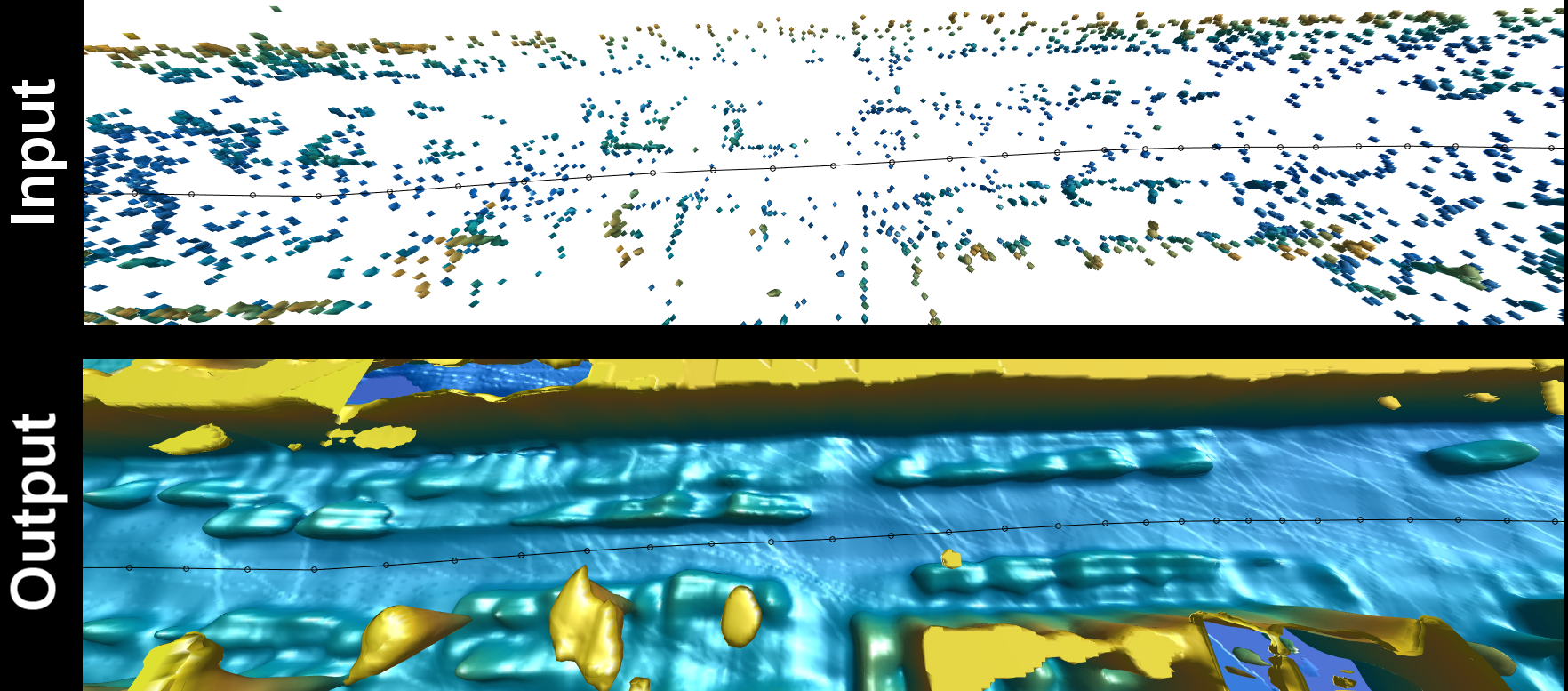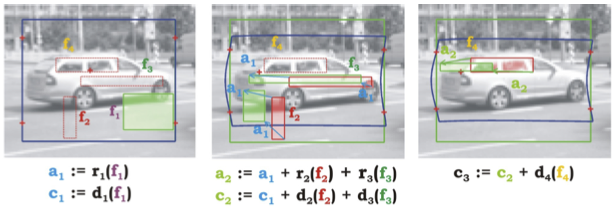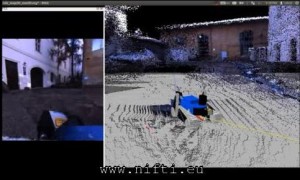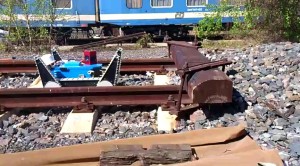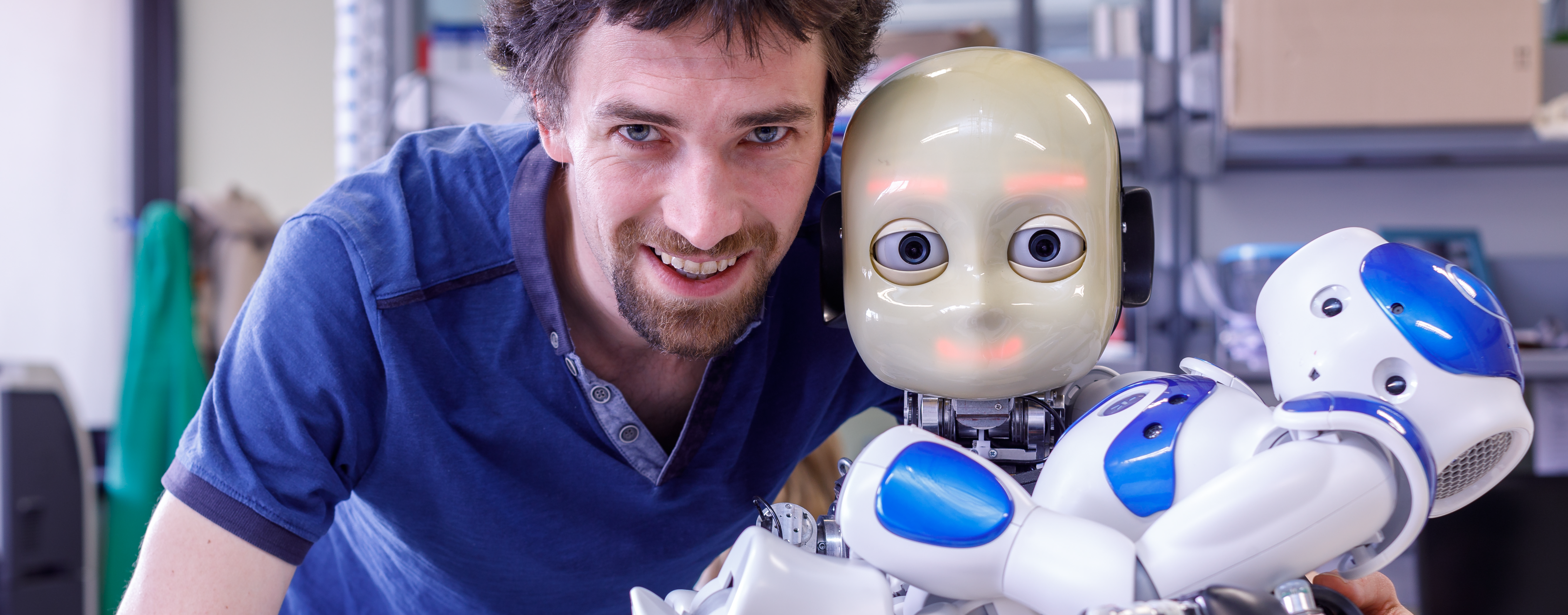
Posted: March 12, 2024
The content of the news is only available in Czech at Seznam zprávy at this link
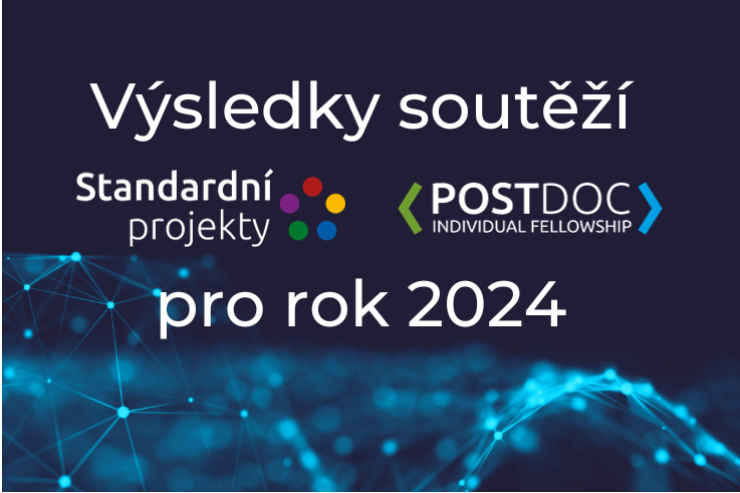
Posted: December 6, 2023
The Czech Science Foundation (GACR), the largest Czech grant funding provider for basic research, will fund 357 scientific projects being launched next year in the Standard Projects and POSTDOC INDIVIDUAL FELLOWSHIP grant schemes. These projects will receive CZK 2,75 billion over the next 3 years. The projects receiving funding cover a wide range of basic …
read more
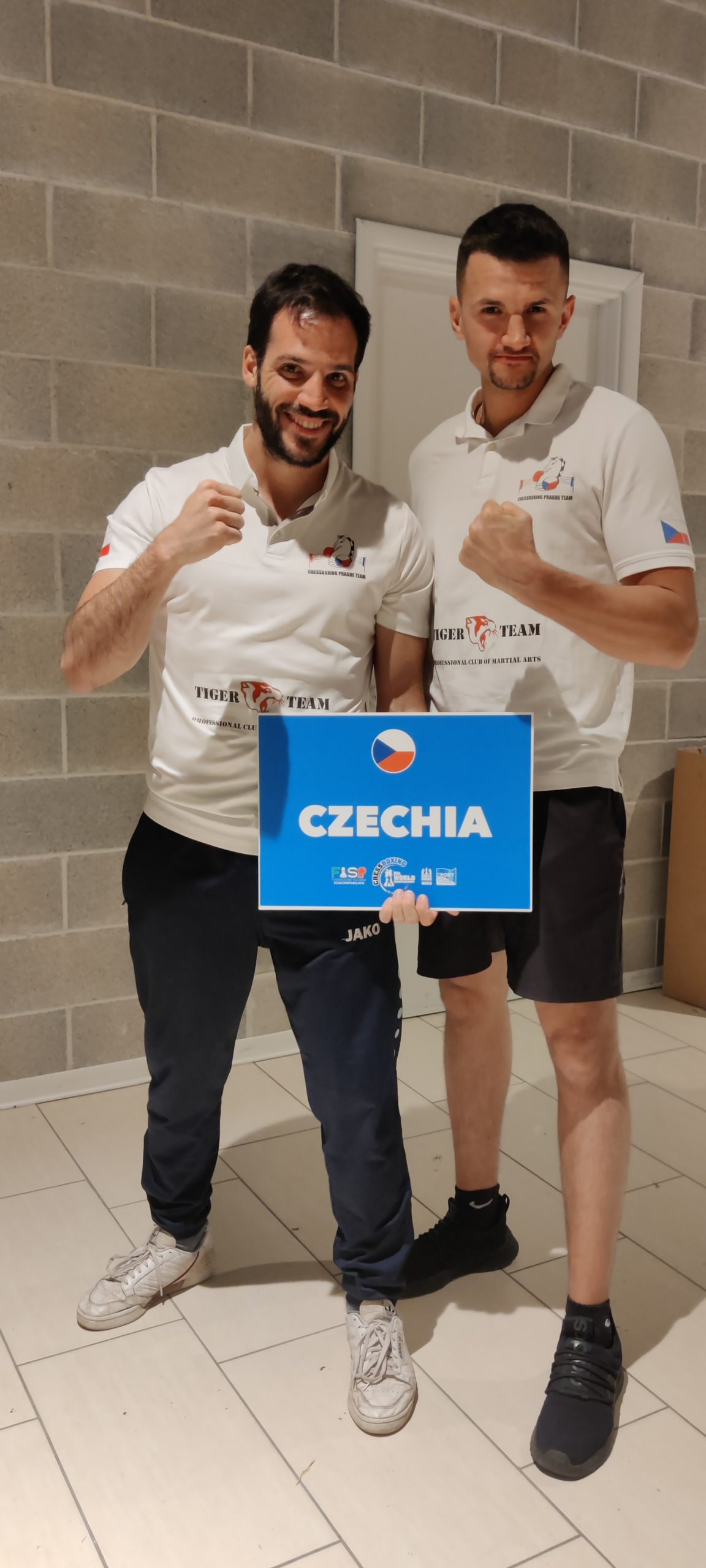
Posted: November 16, 2023
Congratulations to Valentin Marcel from the Humanoid group, who won his second consecutive world title in Chessboxing. After a very tied confrontation at the World Championship in Italy, Valentin won and defended his title of middleweight category champion (WCBO league). Chessboxing is a sport combining boxing rounds with a game of rapid chess, in alternate, …
read more
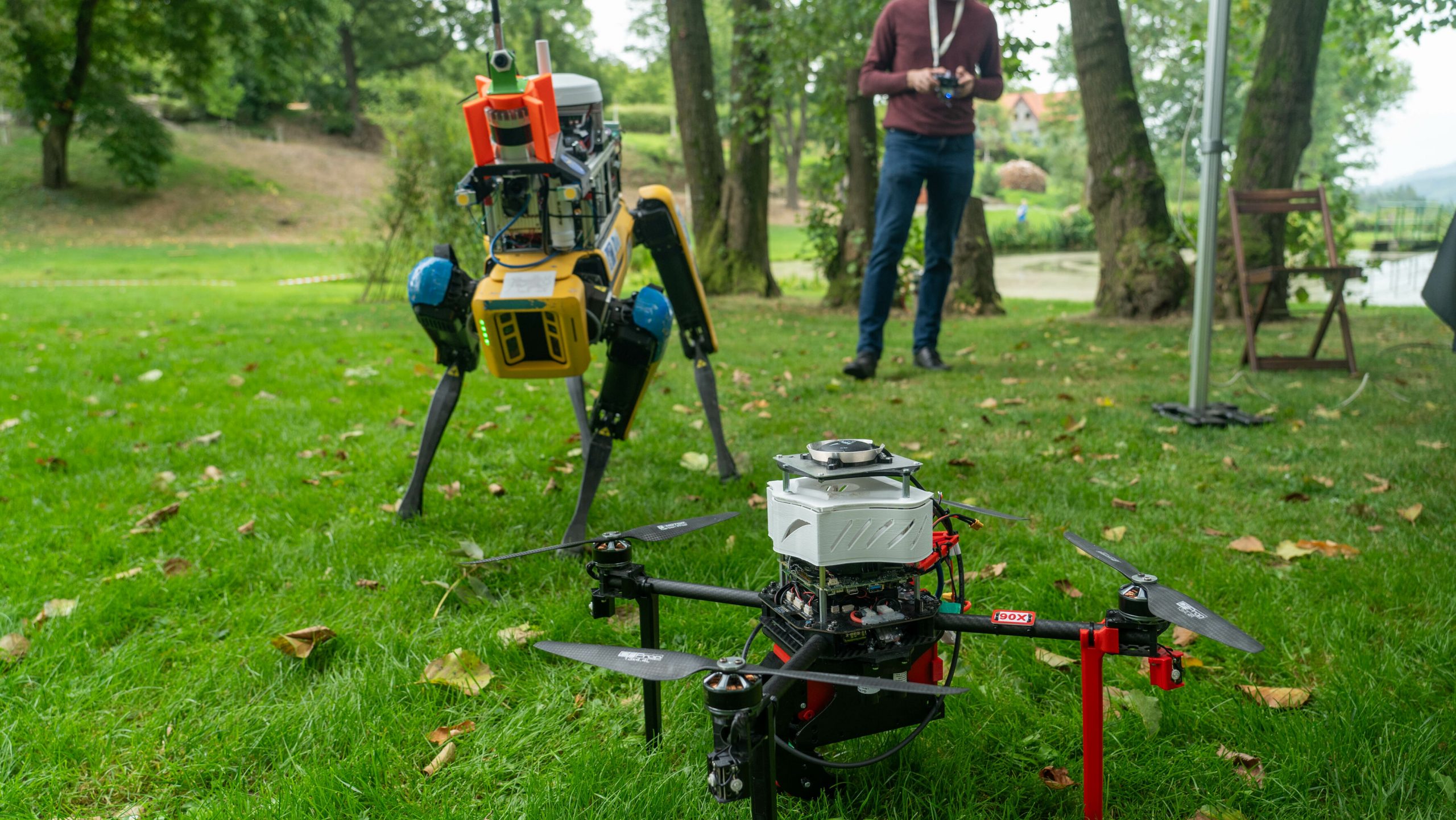
Posted: September 27, 2023
The Axis Demoshow meeting for about a hundred security managers and experts from major Czech companies and institutions took place on 21 September 2023 in the premises of the Všetice Farm near Benešov u Prahy. The programme included demonstrations of experimental systems assembled by teams led by Professor Tomáš Svoboda and Associate Professor Martin Saska …
read more
Posted: June 16, 2023
Petr Švarný successfully defended his Ph.D. thesis Perirobot space representations for safe human-robot interaction Supervisor: doc. Mgr. Matěj Hoffmann, Ph.D. Congratulations!
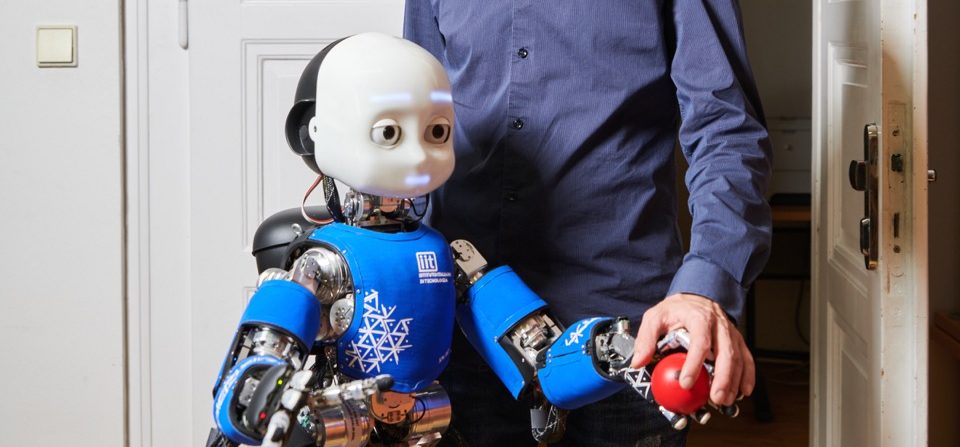
Posted: June 2, 2023
Sorry, this entry is only available in Česky.
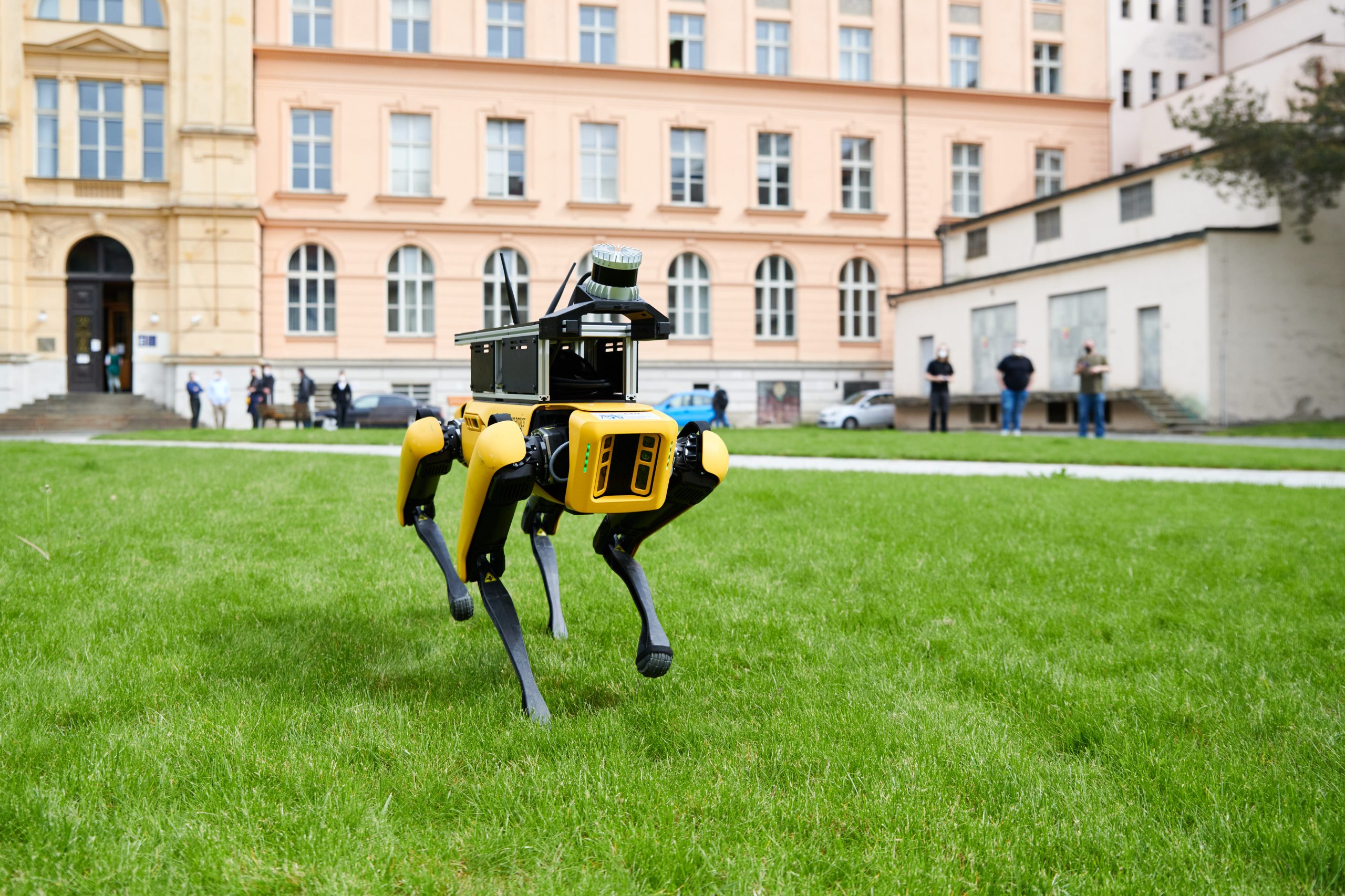
Posted: February 21, 2023
Sorry, this entry is only available in Česky.
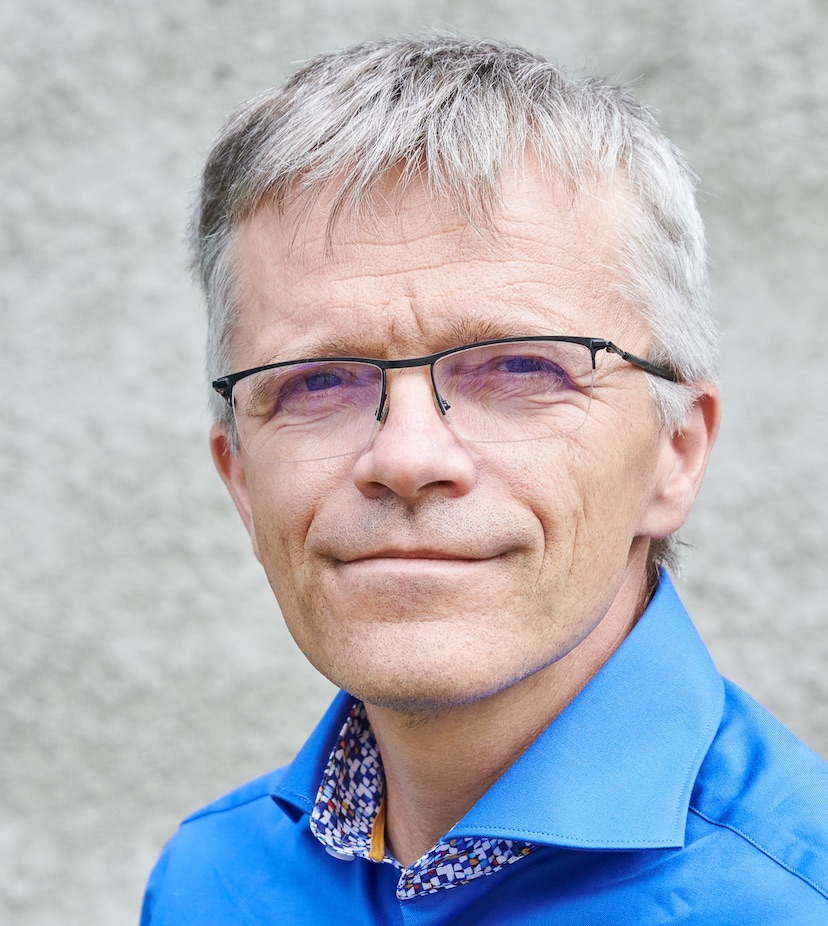
Posted: November 22, 2022
Interesting discussion about the challenges of autonomous cars with prof. Tomáš Svoboda, David Hurych /valeo.ai/ and Vladimír Rybecký /Autoweek/ on the Czech radio. The whole record is only available in the Czech language.
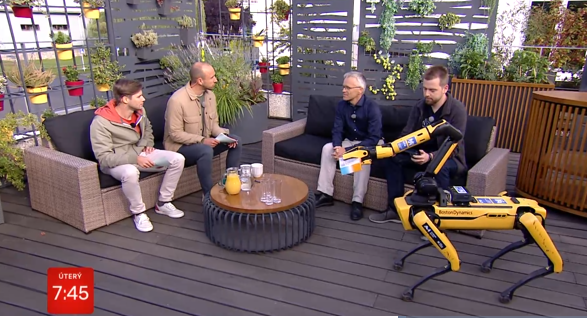
Posted: July 18, 2022
Sorry, this entry is only available in Česky.
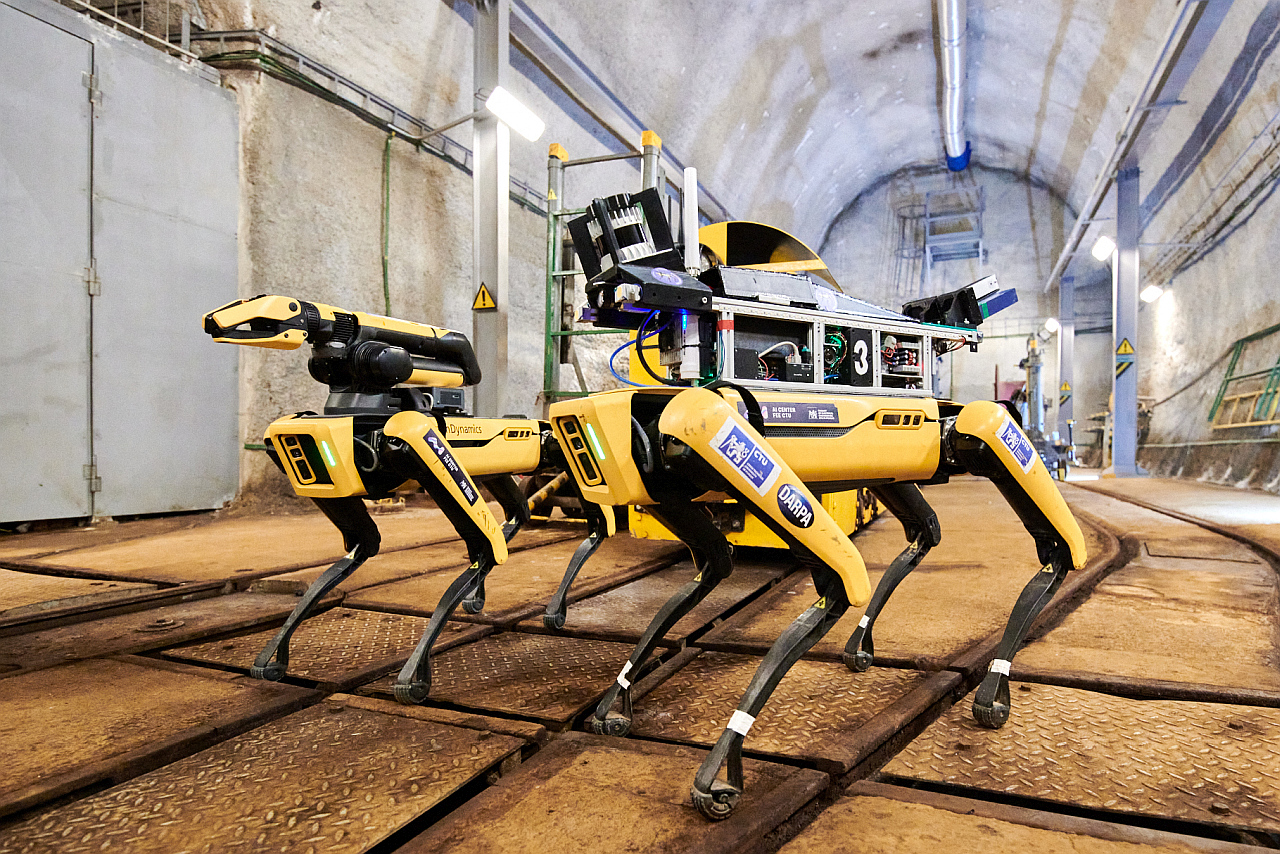
Posted: June 30, 2022
The latest addition to the robot team is the four-legged autonomous SPOT robot from Boston Dynamics with a robotic arm. The RBG camera and a depth sensor are integrated into the gripper, which enables the robot to gather more information and expand utilization. 3D mapping and data gathering in the Prague underground and cooperation with …
read more
Posted: June 29, 2022
Vojtěch Šalanský successfully defended his Ph.D. thesis Robot Learning and Perception in Sensory Deprived Environment Supervisor: doc. Ing. Karel Zimmermann, Ph.D. Congratulations!
Posted: February 22, 2022
Zájemci o studium elektrotechniky a informatiky na FEL ČVUT budou mít opět příležitost seznámit se s technologiemi, které výrazně ovlivní způsob, jakým budeme pracovat, odpočívat či cestovat v následujících desetiletích. Fakulta elektrotechnická (FEL) ČVUT zpřístupní v pátek 25. února 2022 během dne otevřených dveří svá pracoviště v Dejvicích a na Karlově náměstí. Od autonomně řízených …
read more
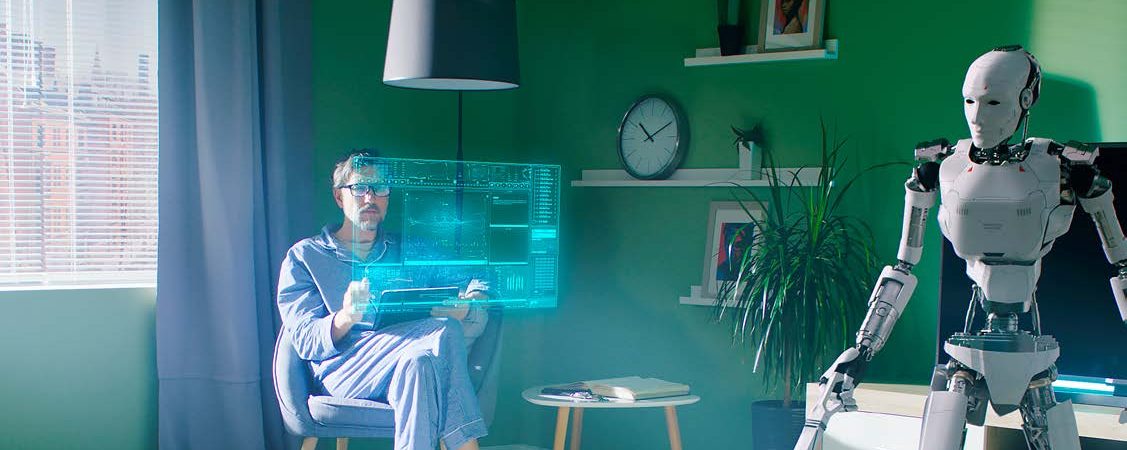
Posted: January 17, 2022
Sorry, this entry is only available in Česky.
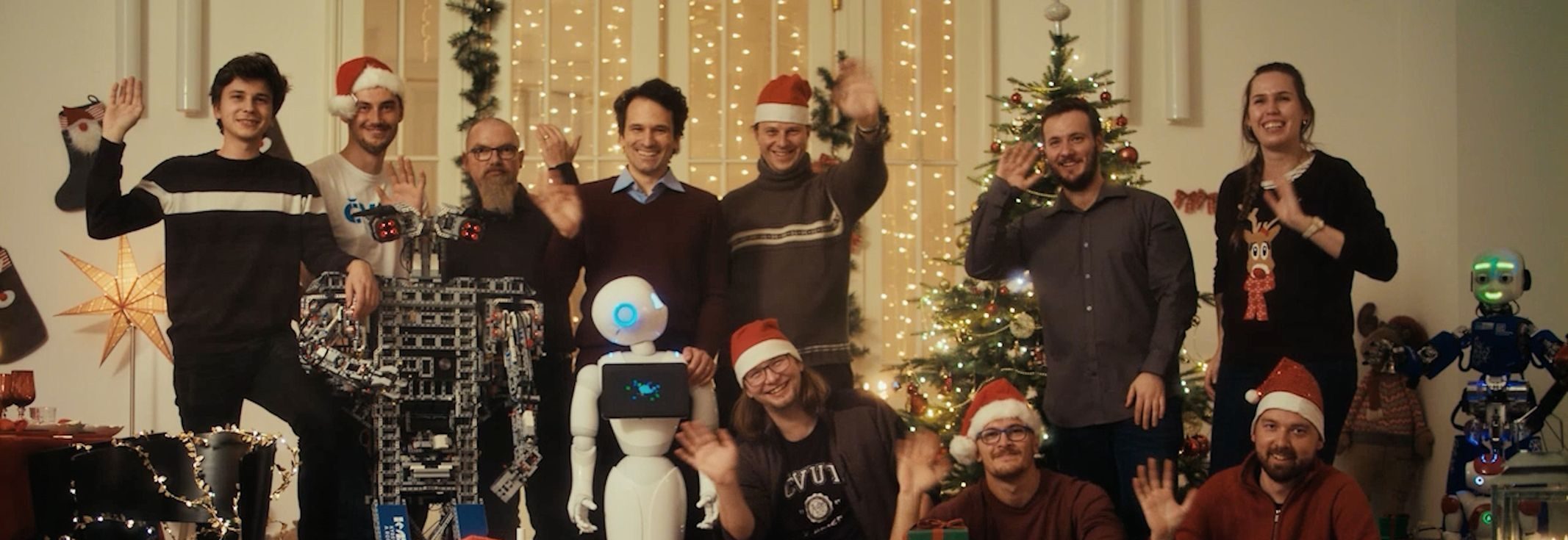
Posted: December 30, 2021
The Christmas video “Happy Holidays from the Robot Nativity” was very popular in the last days of this year. – on YouTube – almost 17 500 views, 735 likes, 28 comments – on Facebook – more than 16,200 views, reach among 46,000 people, 1,100 positive reactions only (thumbs up, hearts, etc.), 192 shares, 65 comments …
read more
Posted: December 20, 2021
An empty lecture hall bathed in blue evening light. Silence reigns, only on the blackboard we see a complex pattern over which is written “Merry Christmas”. Then a Scarab wrapped in Christmas lights walks across one of the tables, soon a robot emerges from behind the door, shrouded in darkness, and the slow strains of …
read more
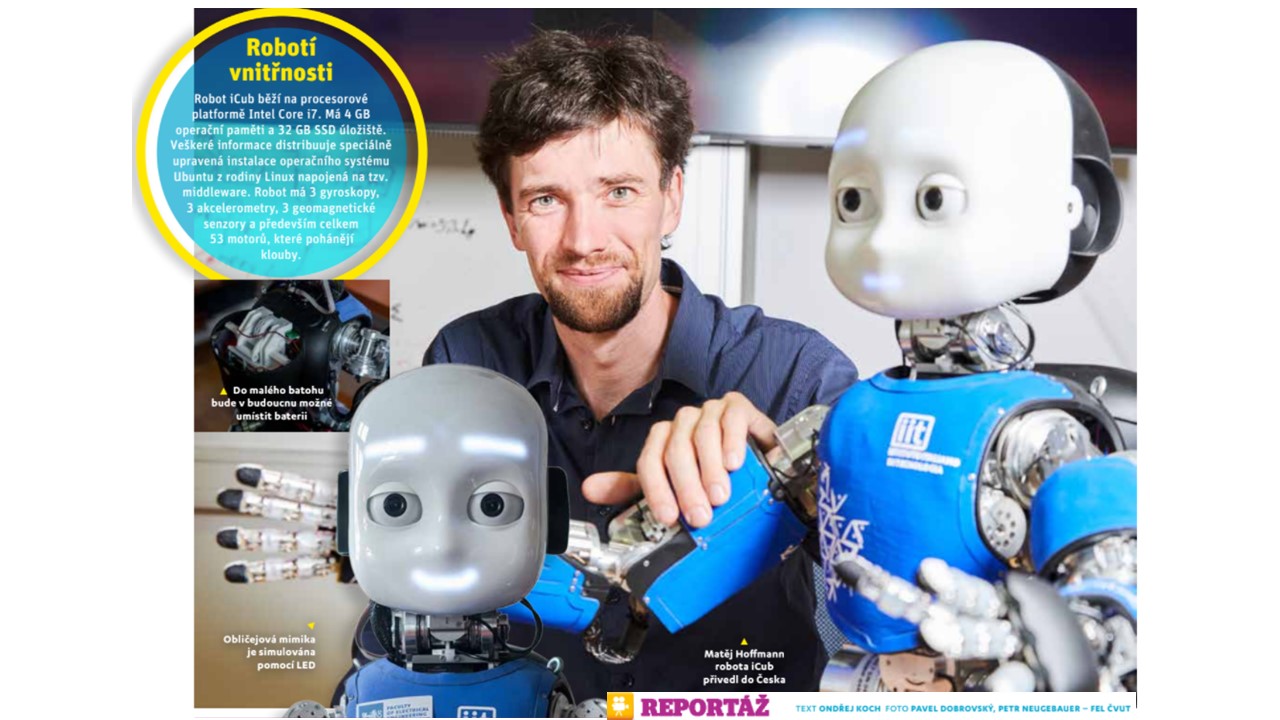
Posted: November 10, 2021
Sorry, this entry is only available in Česky.
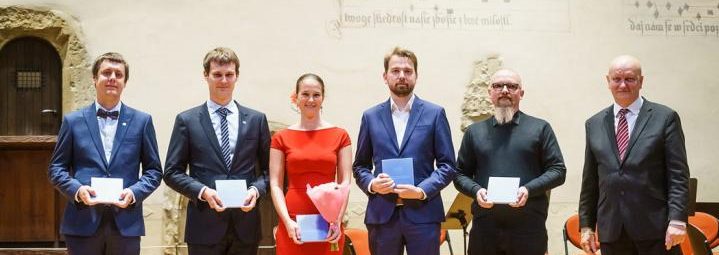
Posted: November 30, 2021
Dne 30. listopadu 2021 se uskutečnilo v Betlémské kapli slavnostní předání Medailí k ocenění odborníků ČVUT za mimořádné výkony v době krize. Rektor ČVUT doc. Vojtěch Petráček udělil 106 medailí výzkumníkům a dalším osobnostem, kteří svými inovacemi a osobním či týmovým zapojením přispěli k řešení pandemické situace koronaviru v České republice i v zahraničí. Medaile …
read more
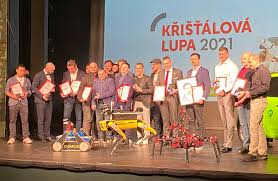
Posted: November 30, 2021
The Crystal Loupe – Czech Internet Award is a regular voting of the public and an expert jury, in which the most popular and interesting projects and services of the Czech Internet are selected and awarded. This year’s 16th edition of the award ceremony was hosted also by Prof. Tomáš Svoboda and his robots Charlie, …
read more
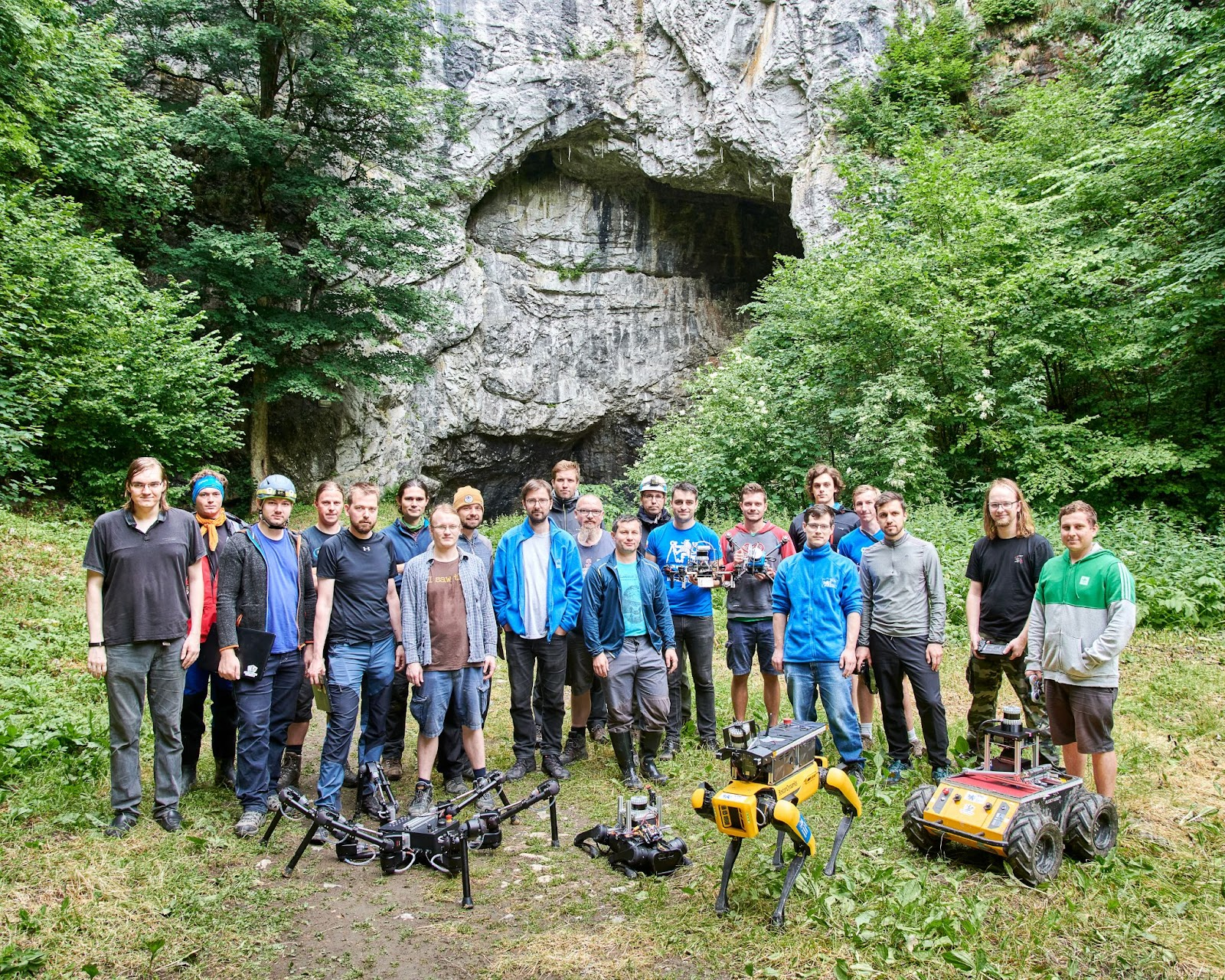
Posted: November 11, 2021
Sorry, this entry is only available in Česky.
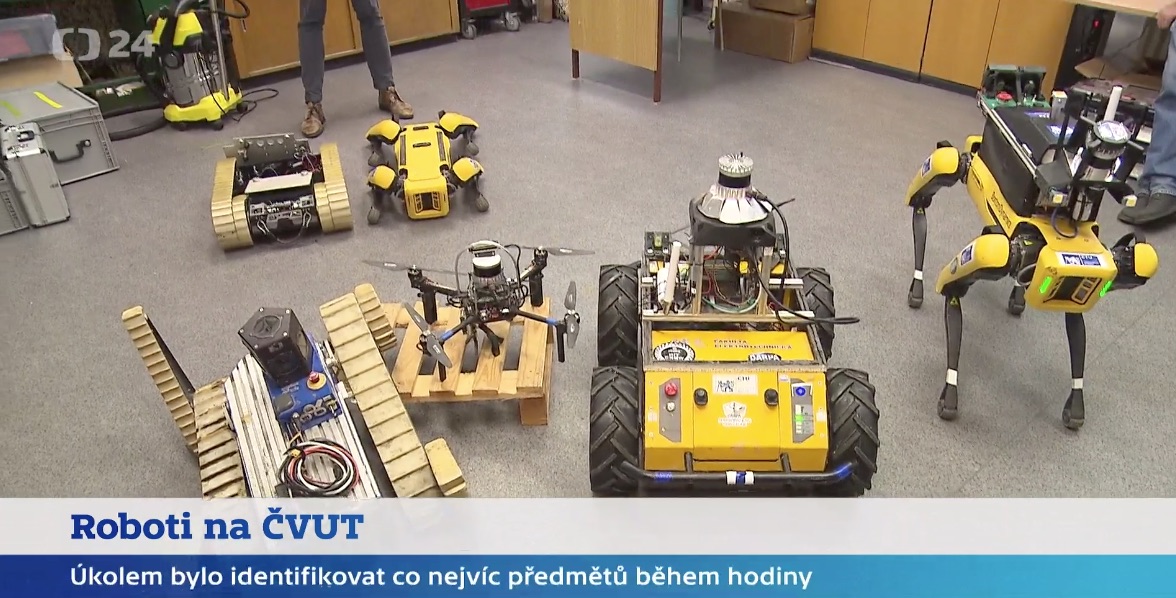
Posted: November 2, 2021
All you wanted to know about robotics at our faculty in 15 minutes. https://www.ceskatelevize.cz/porady/10101491767-studio-ct24/221411058031021/ starts around 4:30
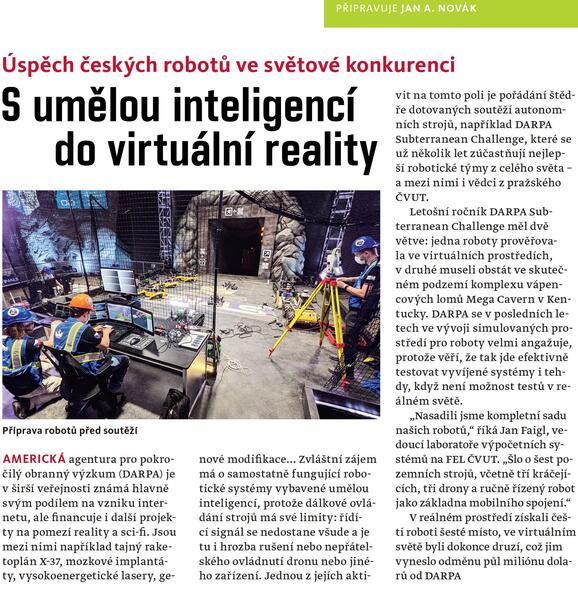
Posted: October 22, 2021
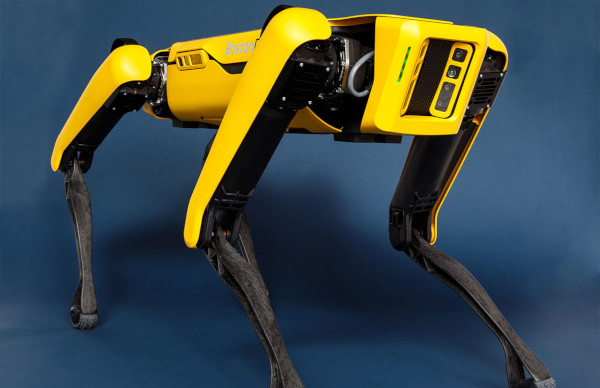
Posted: October 11, 2021
In the new documentary series of Czech Television for children, Professor Tomas Svoboda introduced our SPOT. The report starts at 6:45 min
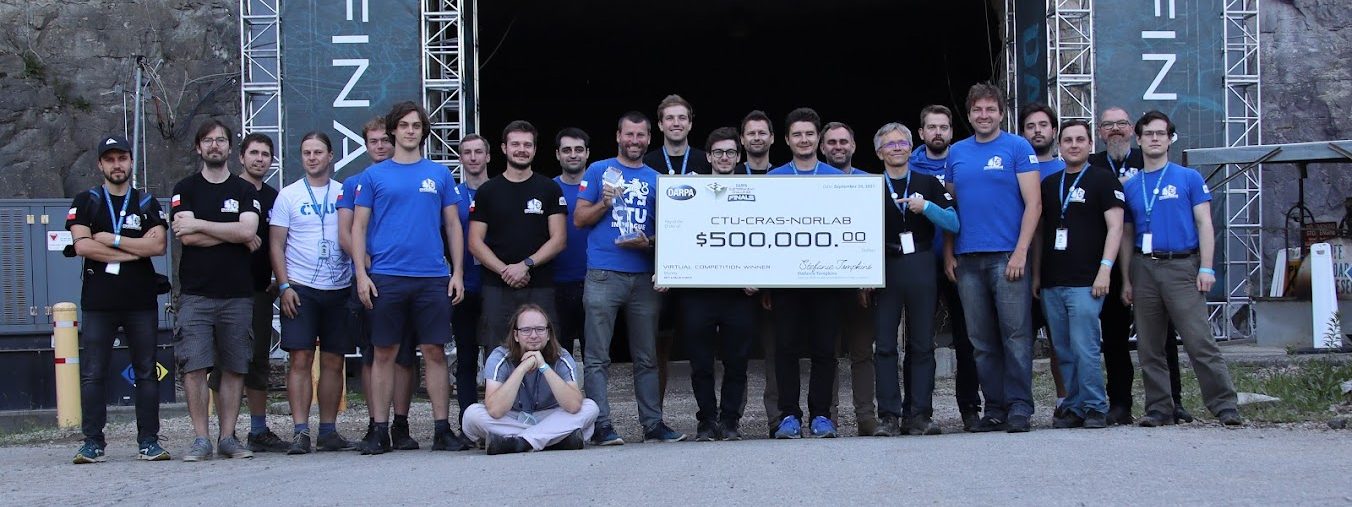
Posted: September 25, 2021
The results of the DARPA SubT Challenge finals were announced on Friday 24 September at a ceremony in Louisville, Kentucky, United States. The CTU-CRAS-NORLAB team finished second among the top ten robotics teams in the world in the viral competition, earning a $500,000 prize. “We were mainly focused on the main competition with real robots, …
read more
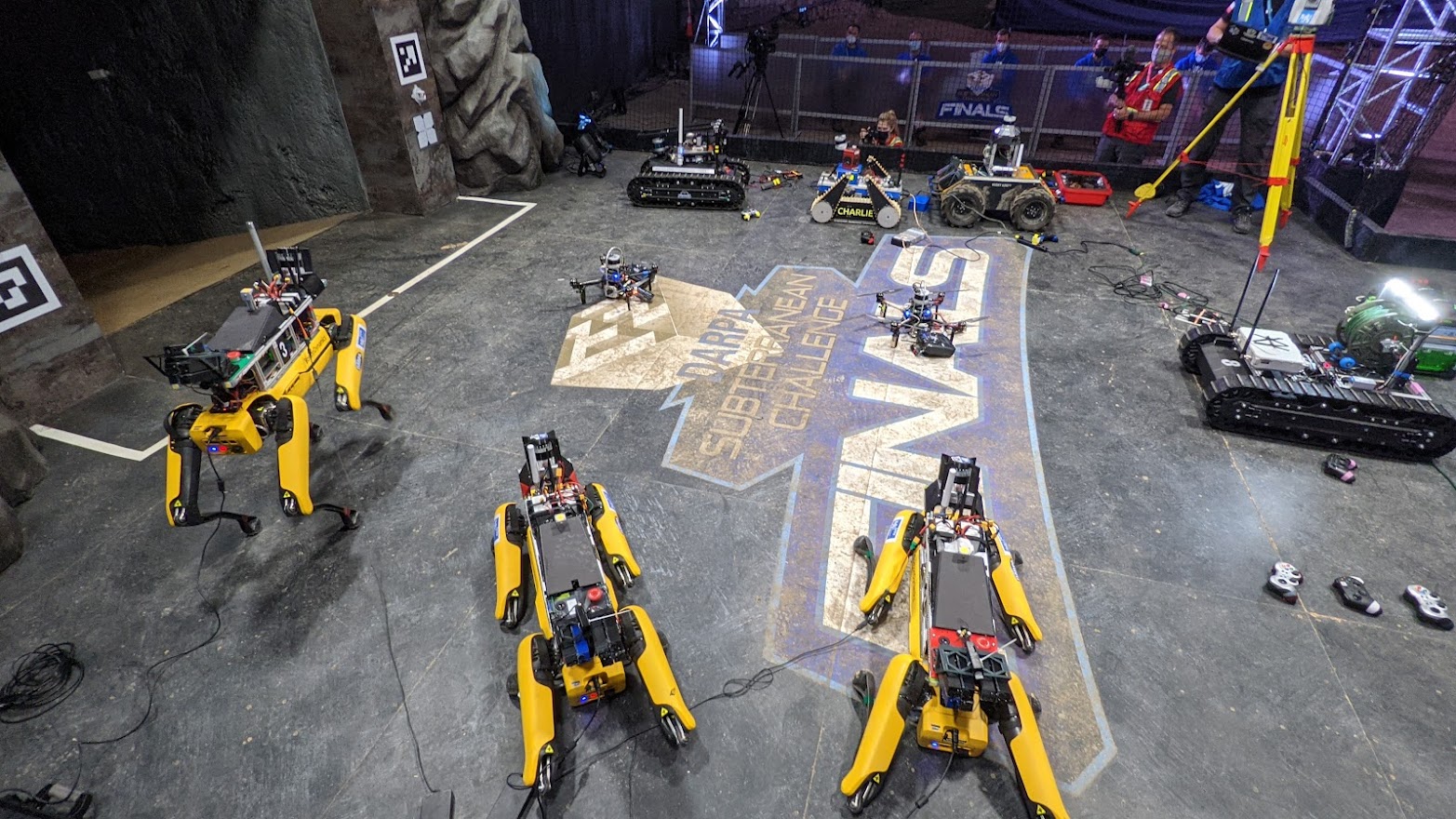
Posted: September 24, 2021
The final round of the DARPA Subterranean Challenge are held on 24 September 2021 at the MegaCavern underground complex in Kentucky, USA. Check out the report that begins at 13:25 min (premiere on 20. 9. 2021)
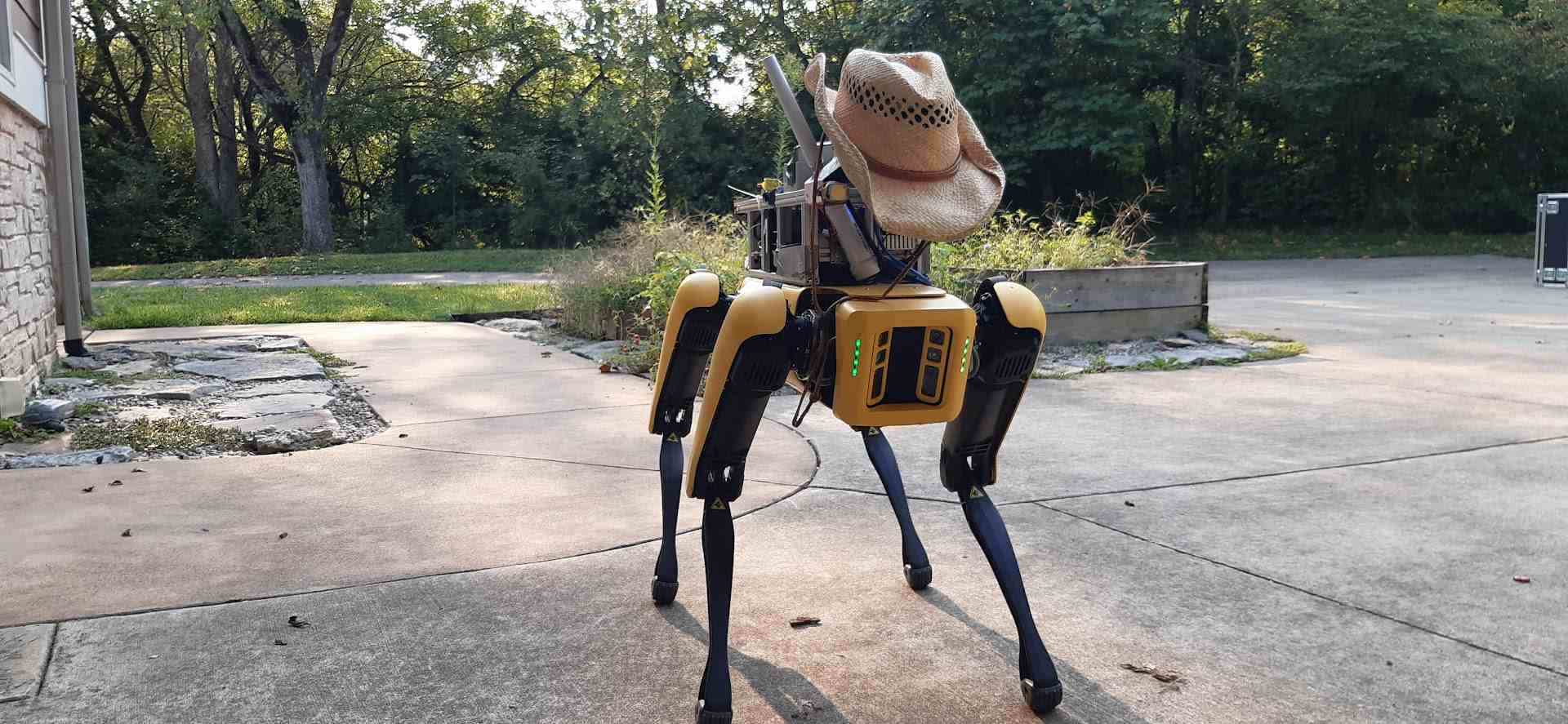
Posted: September 21, 2021
The hot days of DARPA Subterranean Challenge have started, let’s cheer together every day!

Posted: September 17, 2021
The final round of the DARPA Subterranean Challenge will take place from 21 to 24 September 2021 at the MegaCavern underground complex in Kentucky, USA. Our team travelled to the United States two weeks ago and has been working hard on preparations for the final round. “We are still tweaking and fixing things,” says Prof. …
read more

Posted: September 17, 2021
“This is the first robot that has the sense of touch on the whole body,” says Dr. Matěj Hoffmann, Head of the Humanoid robotics group. The iCub importantly extends the existing portfolio of humanoid robots available to the group (two Nao and one Pepper robot), as it is most anthropomorphic – most similar to humans. …
read more

Posted: September 2, 2021
Matej Hoffmann and Filipe Gama presents their research Goal-directed tactile exploration for body model learning through self-touch on a humanoid robot on IEEE Spectrum Watch the video on Youtube

Posted: August 30, 2021
Read another post about SPOT robot on Seznam-Zpravy from 19. 8. 2021
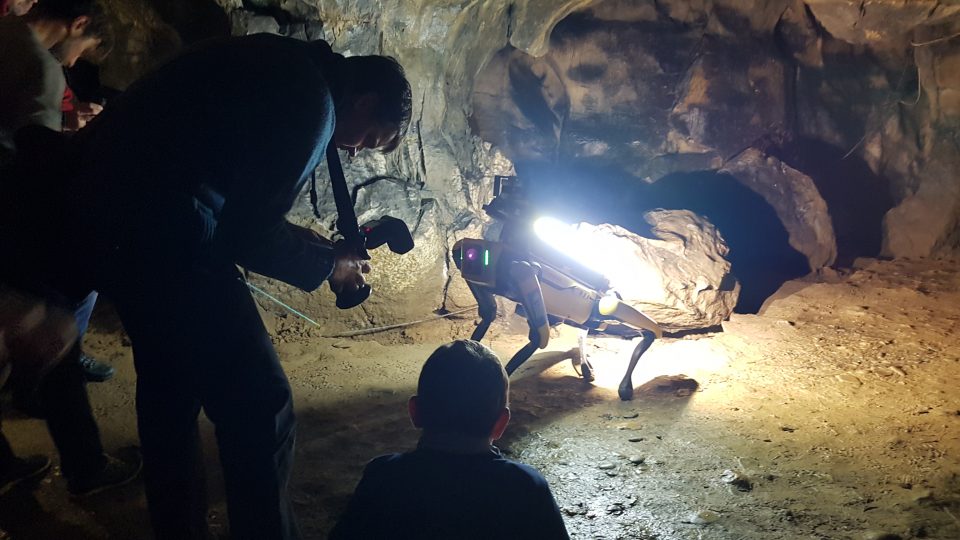
Posted: July 9, 2021

Posted: July 8, 2021
Read the article and listen to the report with interviews with members of the CTU-CRAS-NORLAB teams from 29 June 2021 on ČRo Plus (radio.cz) Czech Radio Plus also broadcast live from the Bull Rock Cave on June 25 – beginning at 15:51:32, link https://program.rozhlas.cz/zaznamy/portal#/plus/2021-06-25 Watch the video on TV Adamov
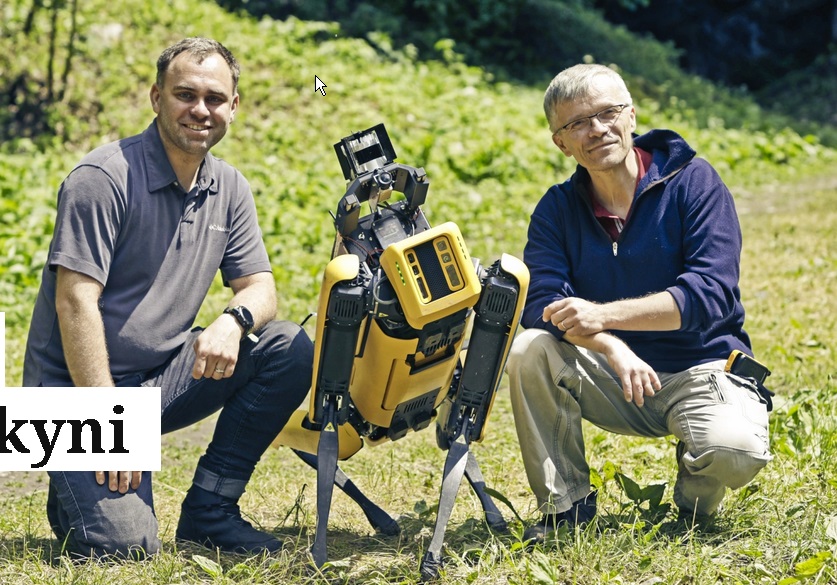
Posted: July 1, 2021
From 21 to 25 June 2021, the cave complex Býčí skála in the Moravian Karst hosted the preparation of our robotics team for the final round of the DARPA Subterranean Challenge, which will take place from 21 to 24 September 2021 in the United States of America. The purpose of the competition, which is a …
read more
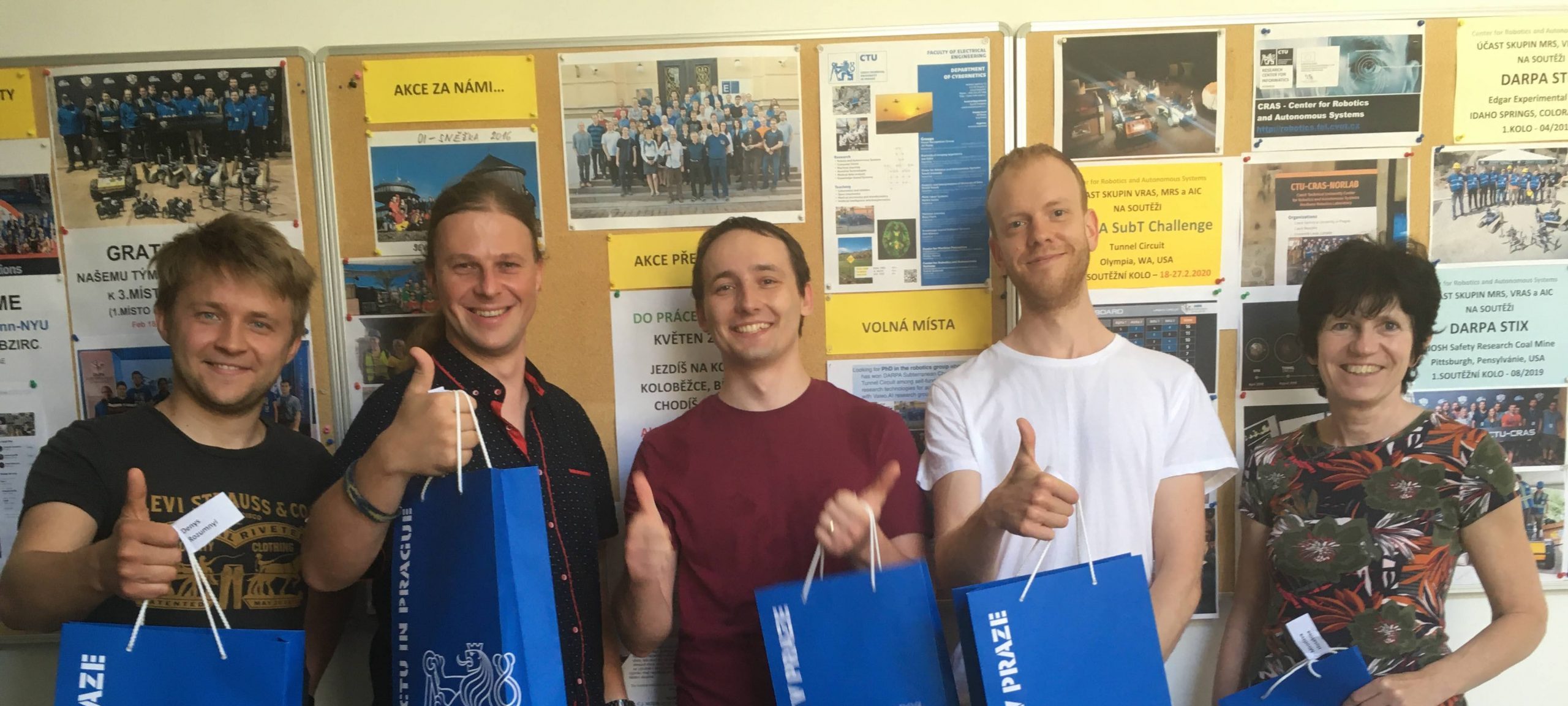
Posted: June 30, 2021
Employees and students of our department participated under the company profile “CTU in Prague” in this year’s national challenge, which took place from 1 to 31 May and motivated to travel by bike, scooter, on foot or at a trot. Teams of two to five employees and students recorded the kilometres they cycled, ran or …
read more
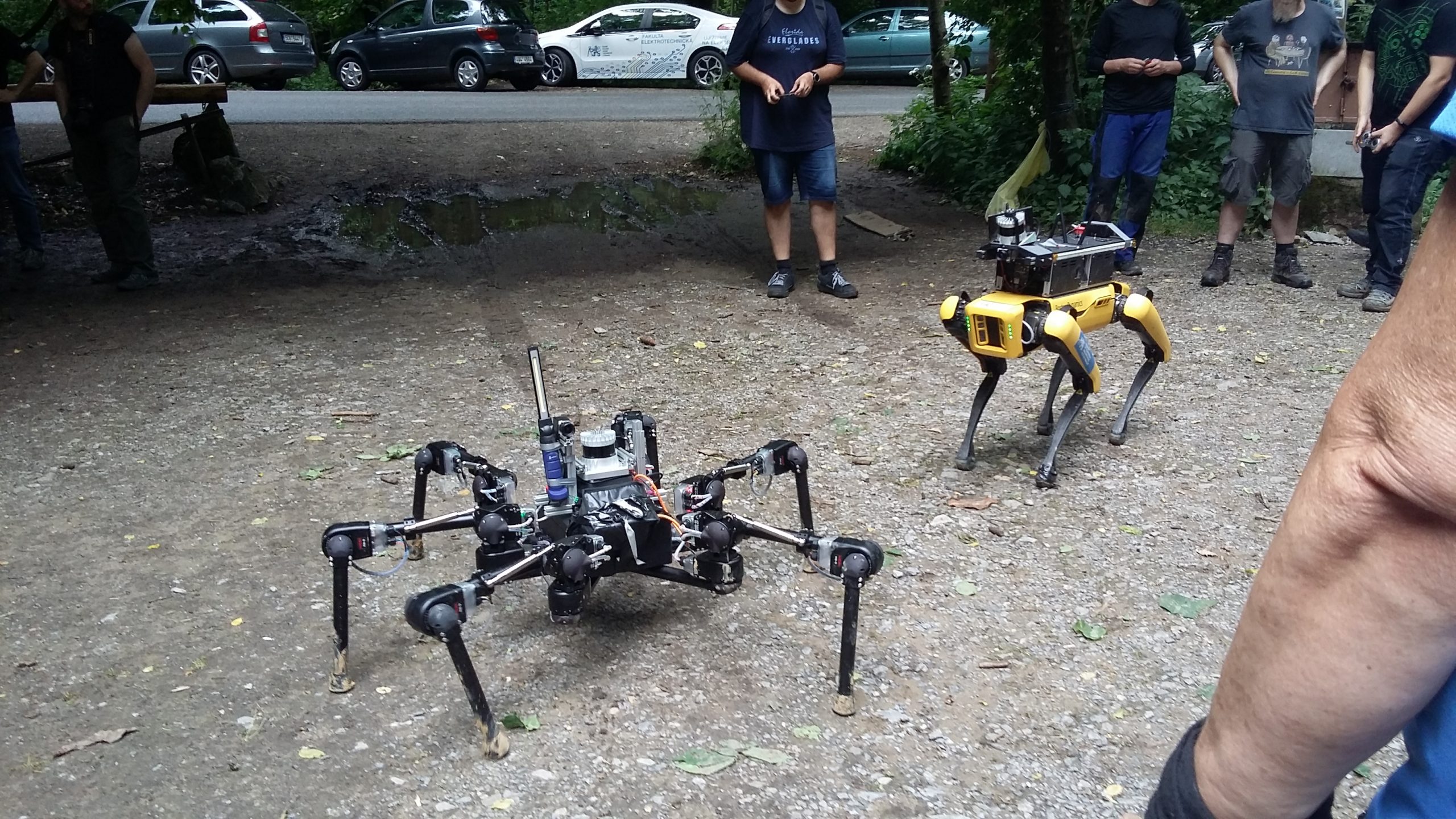
Posted: June 23, 2021
Next week, a four-legged robot SPOT will step into the Bull Rock in the Moravian Karst for the first time, together with other robotic systems and drones from the team of roboticists from the Faculty of Electrical Engineering (FEL) of CTU. In the cave complex, which serves as one of the largest wintering grounds for …
read more

Posted: June 17, 2021
Children were intrigued by an Instagram post about SPOT the robot, so Czech Television filmed a report for Zprávičky 😀 Watch from 0:53

Posted: June 10, 2021
He overcomes obstacles in difficult terrain, climbs stairs, can wade through mud and water. The four-legged robot SPOT is now available to cyberneticists from the CTU. They plan to improve the American-made device and use it in the finals of a prestigious robotics competition. The Czech team was able to afford the robot thanks to …
read more
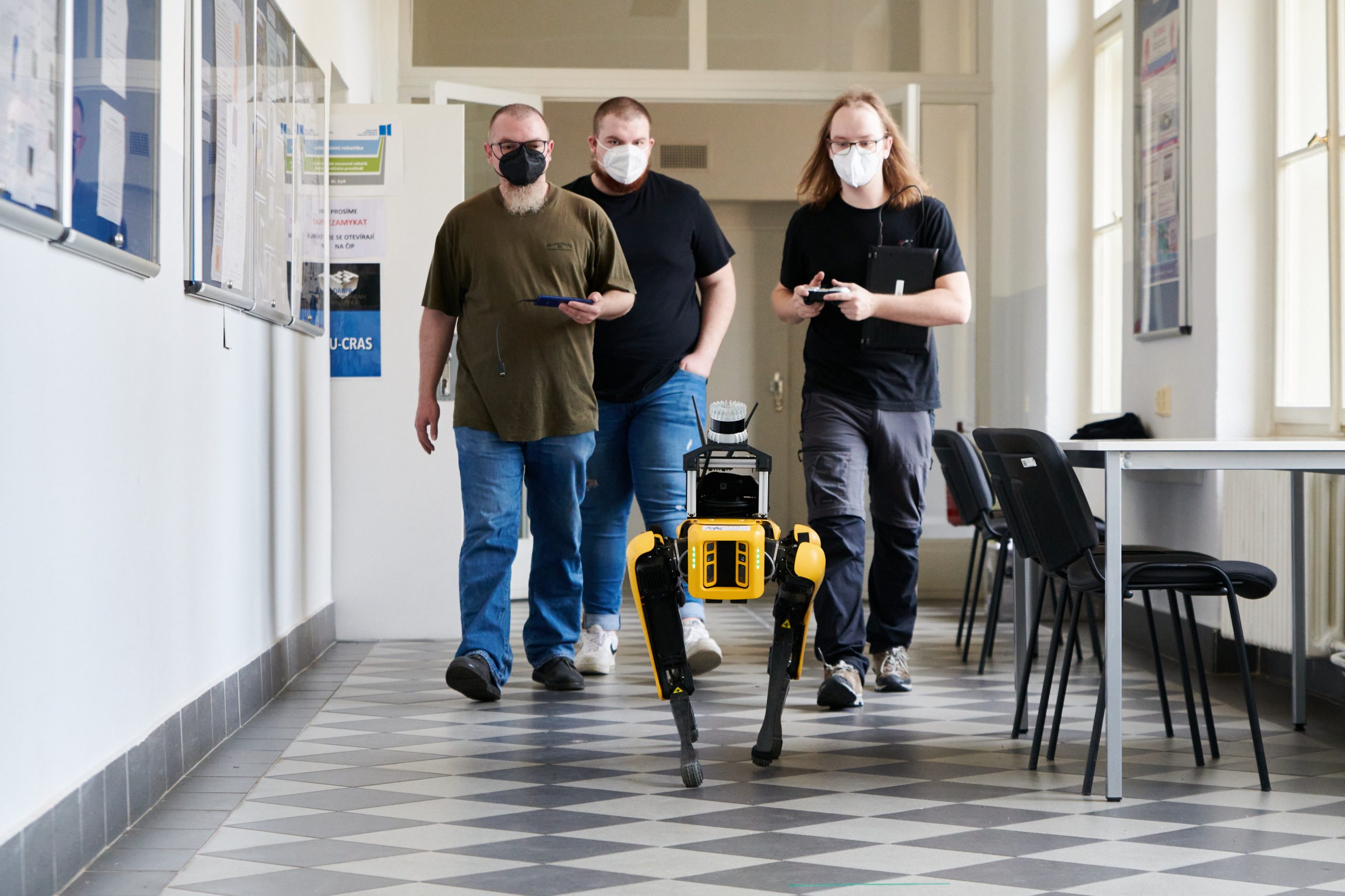
Posted: June 1, 2021
In today’s Studio 6 on CT 1, representatives of the DARPA team Prof. Tomáš Svoboda and Ing. Tomáš Rouček. You can watch the report here, starts at 1:26:30
Posted: May 26, 2021
Forbes magazine published comprehensively and with great interest about our SPOT robot and participation in the DARPA Subterranean Challenge with this headline. The whole journalist article you can read here Photo Petr Neugebauer, FEE CTU

Posted: May 26, 2021
Approximately twenty-member team of robotics CTU-CRAS-NORLAB (Czech Technical University – Center for Robotics and Autonomous Systems – Northern Robotics Laboratory) will set off in the fall to the underground complex MegaCavern in Kentucky, USA to defend third place in the finals of the prestigious DARPA Subterranean (SubT) Challenge, which will take place from 21 to …
read more
Posted: May 24, 2021
About the success of our robotics under the leadership of prof. Tomas Svoboda and plans with Spot robot informed the server E 15 , E 15 lI, Seznam Zprávy, feedit.cz, Lupa.cz, Tyden.cz, Parlamentnilisty.cz, czpravy.cz, Barrandov.tv, ČT24, casopisczechindustry.cz, svetchytre.cz, Právo – Trhy a ekonomika, Technickytydenik.cz, vtmzive.cz, nejbussiness.cz, czechcrunch.cz, strojirenstvi.cz
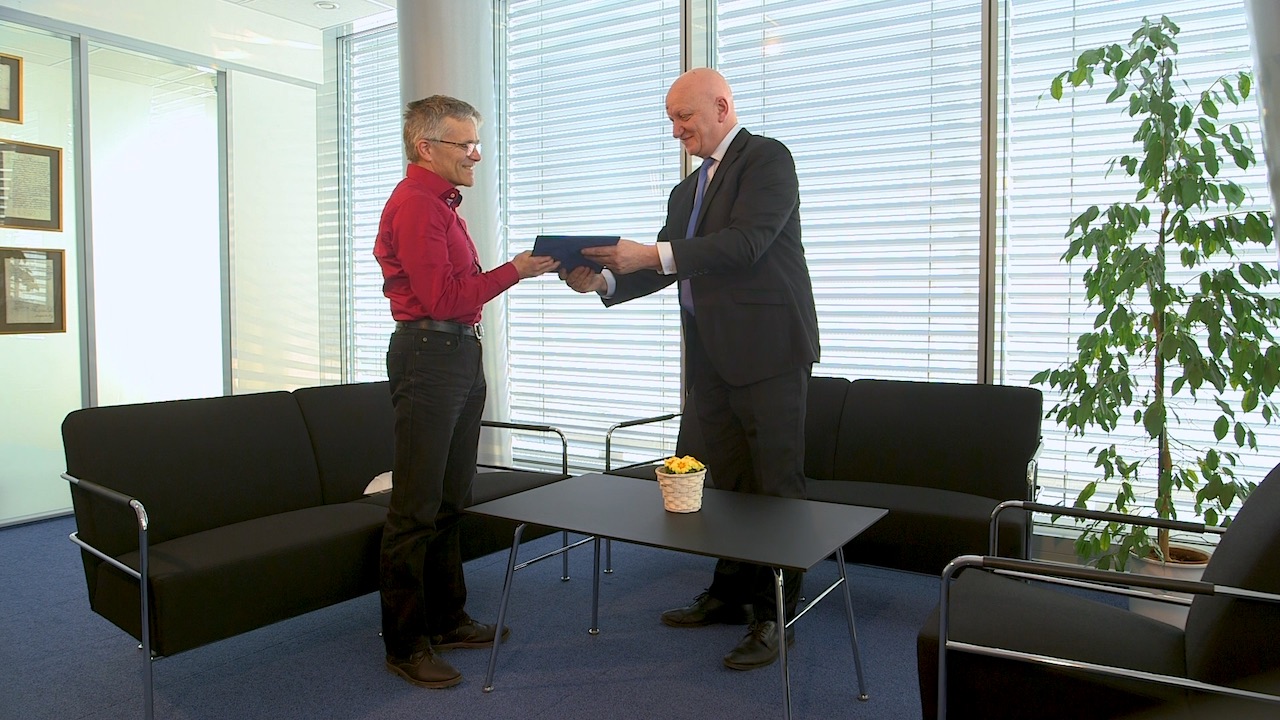
Posted: April 21, 2021
Prof. Ing. Tomáš Svoboda, Ph.D. took over the diploma of professorship from the rector doc. Vojtěch Petráček. Congratulations! The handover act is on the TV9P record: https://youtu.be/J7u9SHDxLkk?t=304.

Posted: March 23, 2021
Posted: February 16, 2021
Martin Pecka successfully defended his Ph.D. thesis entitled Safe Autonomous Reinforcement Learning Supervisor: prof. Ing. Tomáš Svoboda, Ph.D. Supervisor-specialist: doc. Ing. Karel Zimmermann, Ph.D. Congratulations!

Posted: February 1, 2021
Sorry, this entry is only available in Česky.
Posted: January 20, 2021
The group of Humanoid and Cognitive Robotics coordinated by Dr Matej Hoffmann opens a PostDoc position in the humanoid, cognitive, neuro-, and collaborative robotics research. The topics are in the context of the newly starting 5-year project entitled “Whole-body awareness for safe and natural interaction: from brains to collaborative robots” for excellence in fundamental research …
read more
Posted: January 20, 2021
The group of Humanoid and Cognitive Robotics coordinated by Dr Matej Hoffmann opens a fully funded PhD position in the humanoid, cognitive, neuro-, and collaborative robotics research. The topics are in the context of the newly starting 5-year project entitled “Whole-body awareness for safe and natural interaction: from brains to collaborative robots” for excellence in …
read more
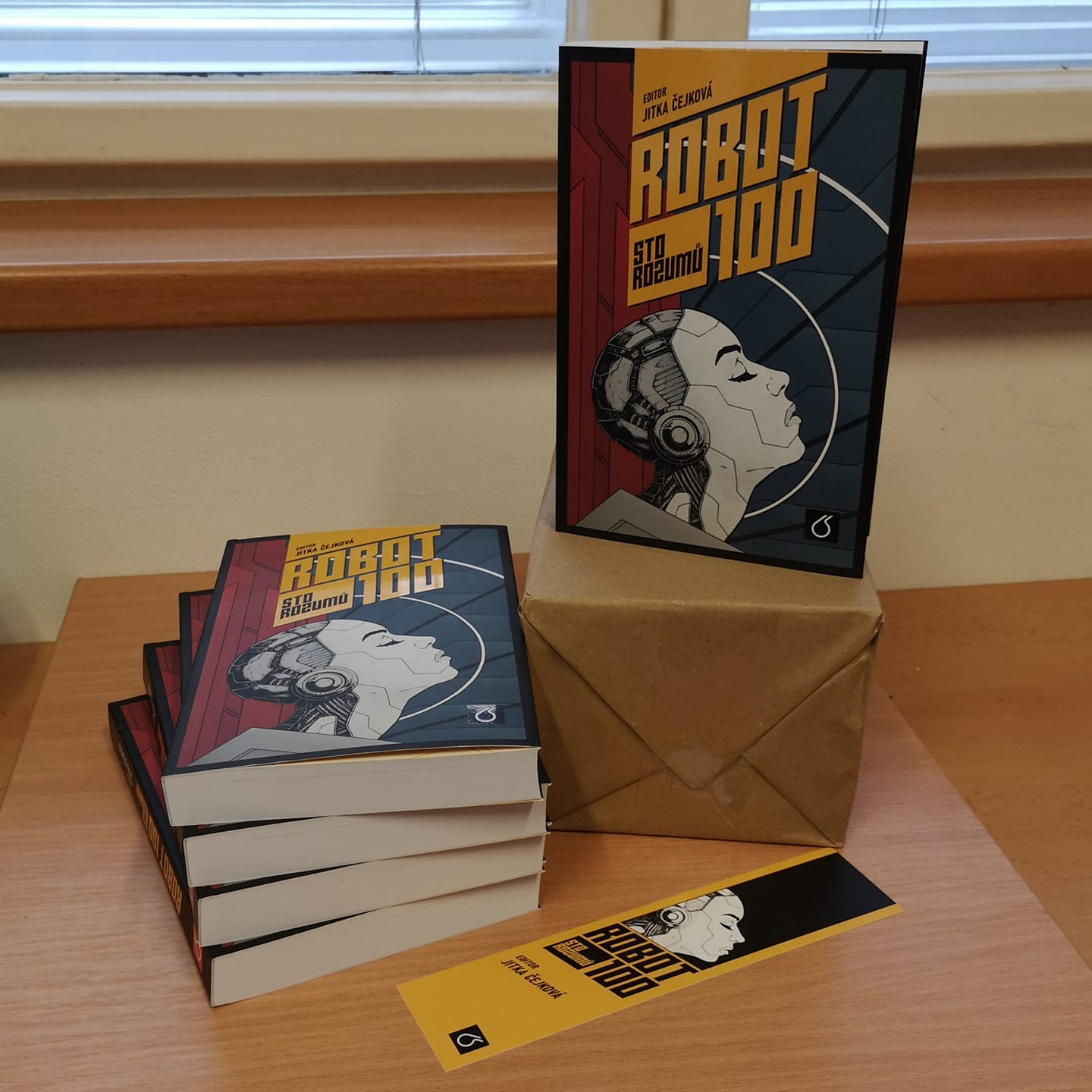
Posted: October 31, 2020
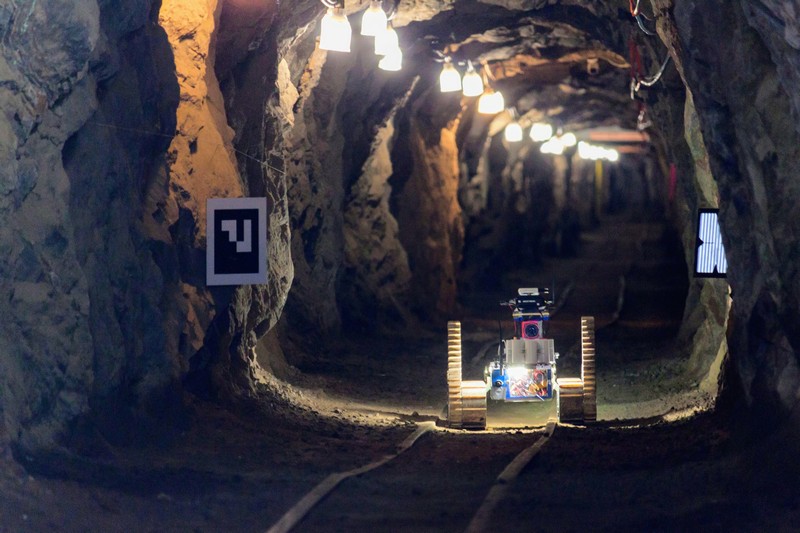
Posted: July 17, 2020
Sorry, this entry is only available in Česky.
Posted: June 19, 2020
The group of Humanoid and Cognitive Robotics coordinated by Dr Matej Hoffmann opens a PostDoc position in the humanoid, cognitive, neuro-, and collaborative robotics research. The topics are in the context of the newly starting 5-year project entitled “Whole-body awareness for safe and natural interaction: from brains to collaborative robots” for excellence in fundamental research …
read more
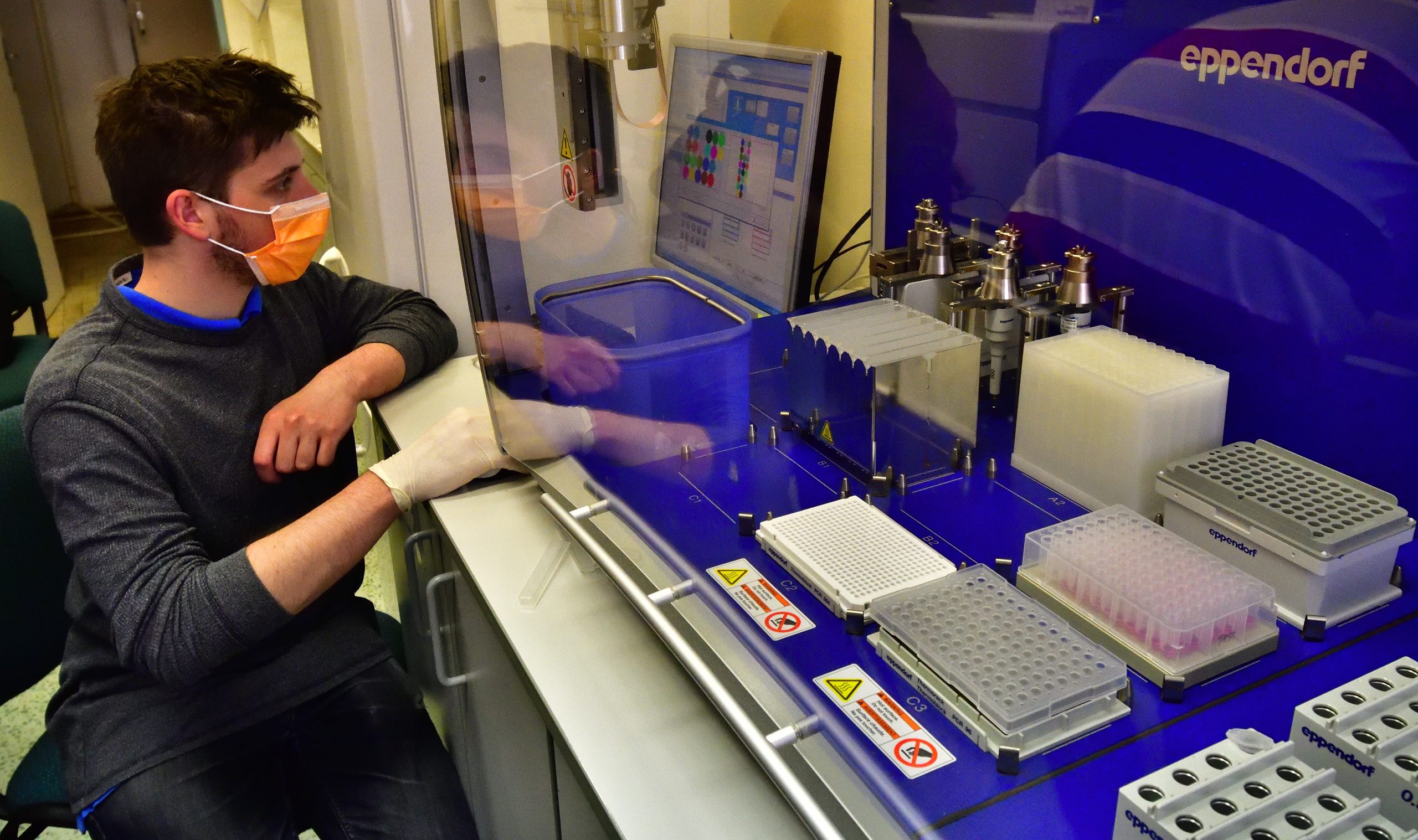
Posted: May 15, 2020
Sorry, this entry is only available in Česky.
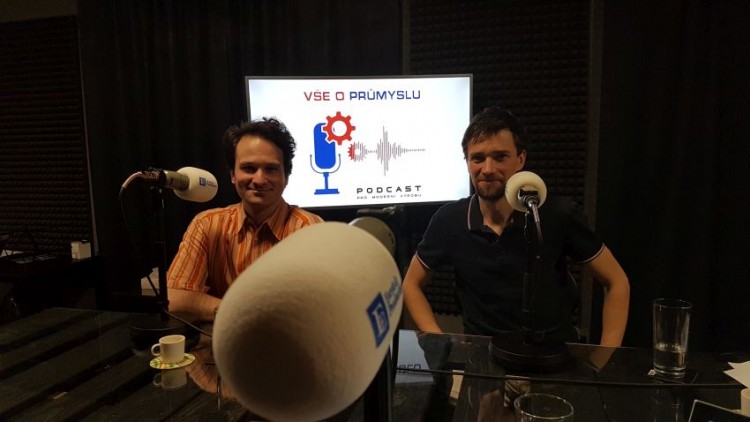
Posted: May 13, 2020
Sorry, this entry is only available in Česky.
Posted: March 23, 2020
Sorry, this entry is only available in Česky.
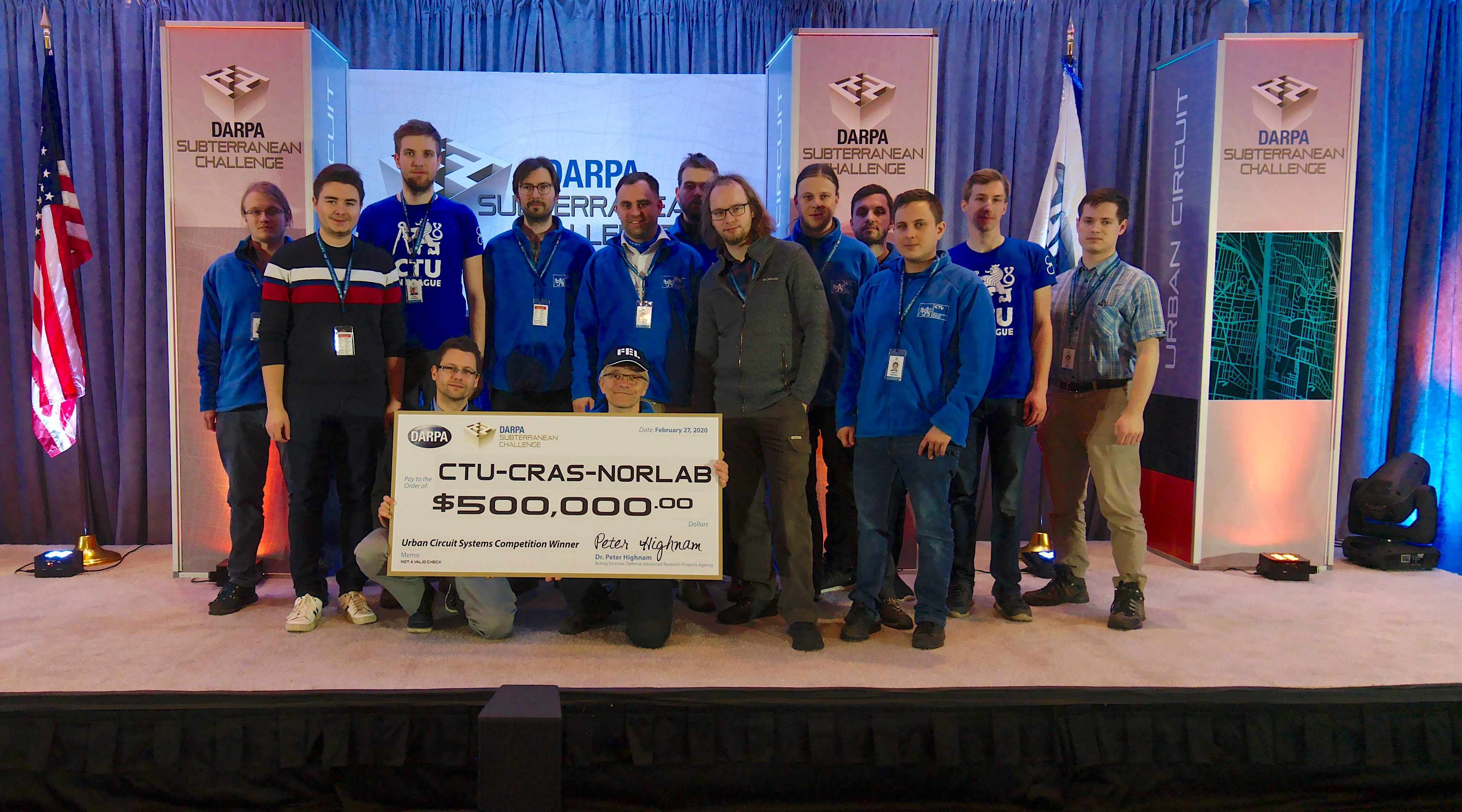
Posted: February 27, 2020
In the second half of February 2020, ten robotic teams gathered at the nearly-built but unfinished nuclear power plant near Elma, Washington. The robots were sent into the underground maze of the huge concrete-steel in a quest to find and locate predetermined 20 artifacts. Researchers, graduate and undergraduate students of Departments of Cybernetics and Computer …
read more
Posted: February 26, 2020
Sorry, this entry is only available in Česky.
Posted: February 13, 2020
Sorry, this entry is only available in Česky.
Posted: January 7, 2020
The group of Humanoid and Cognitive Robotics coordinated by Dr Matej Hoffmann opens a PhD position in the humanoid, cognitive, neuro-, and collaborative robotics research. The topics are in the context of the newly starting 5-year project entitled “Whole-body awareness for safe and natural interaction: from brains to collaborative robots” for excellence in fundamental research …
read more
Posted: December 12, 2019
We open a PhD position in the university environment while being partially supervised by the top-tier researcher from Valeo.AI research group. Show your research to be meaningful by running your codes on the real self-driving car to improve human safety. The position is sponsored by Valeo.AI. WE SEEK CANDIDATES: who are excellent, self-motivated, and willing …
read more
Posted: December 11, 2019
Vision for Robotics and Autonomous Systems group (https://cyber.felk.cvut.cz/vras/) seeks one excellent PhD student and one PostDoc on the following fully-funded positions: DARPA Subterranenan Challenge: Cutting-edge research in the autonomous mapping (SLAM) for mobile robotics. We are expanding the team that just won the DARPA SubT challenge to help us to help us to win again! …
read more
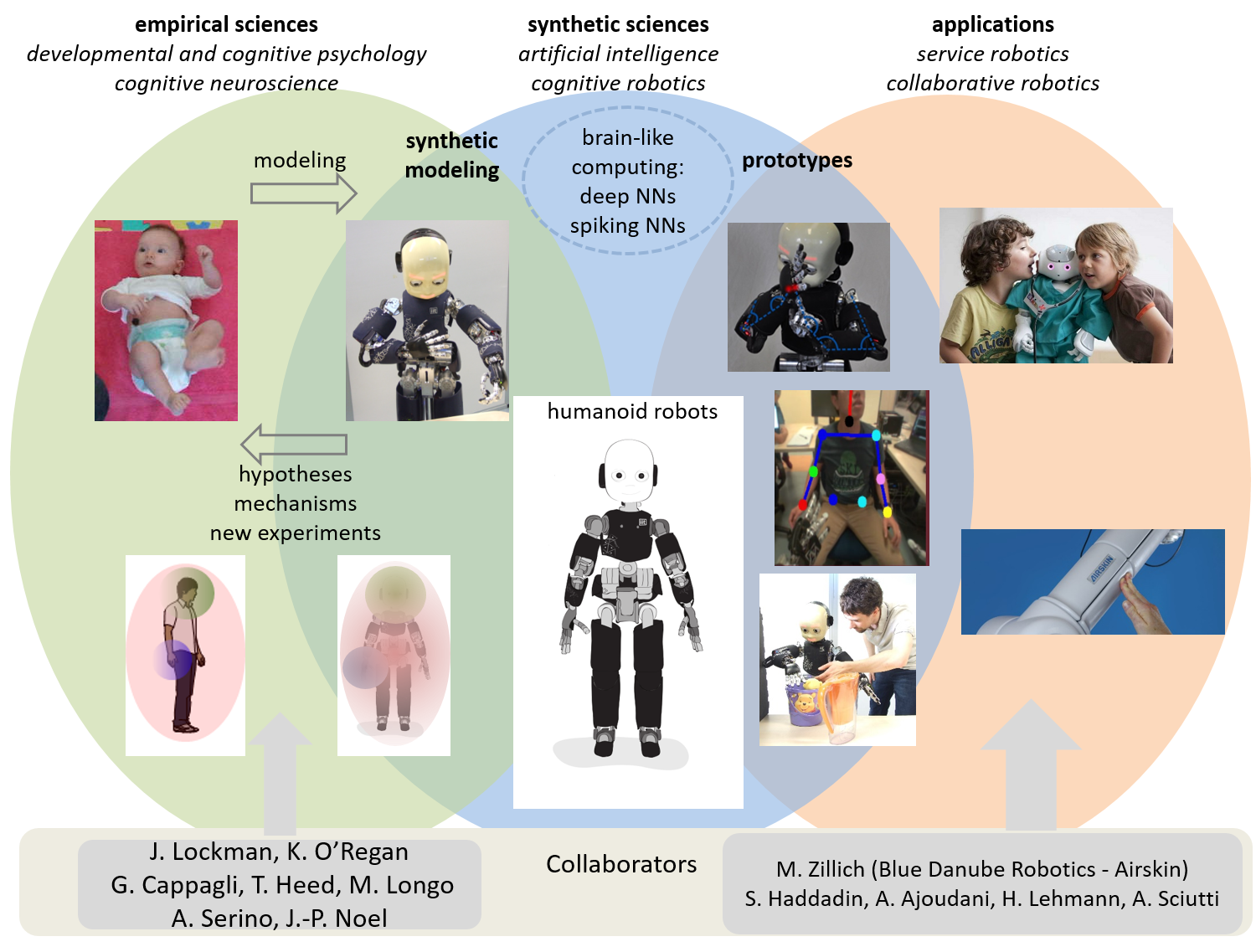
Posted: November 22, 2019
Matej Hoffmann has been awarded the “GAČR EXPRO” project for excellence in fundamental research from the Czech Science Foundation (https://gacr.cz/grantove-projekty-excelence-v-zakladnim-vyzkumu-expro/) for his proposal entitled “Whole-body awareness for safe and natural interaction: from brains to collaborative robots”. The grant will support him and his group for 5 years (2020-2024). As robots are leaving safety fences and …
read more
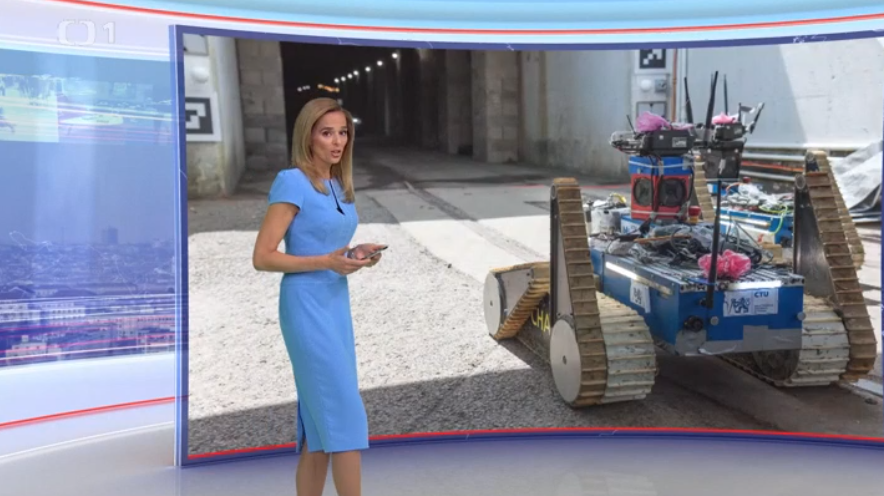
Posted: September 12, 2019
It doesn’t happen every day that you appear in the main evening broadcasting at Czech TV (Česká televize). It does for example when you win DARPA SubT Challenge among self-funded teams. Amazing success of ČVUT FEL team CTU-CRAS formed by our teams Multi-robot Systems (Martin Saska) and Vision for Robotics and Autonomous Systems (Tomáš Svoboda) and colleagues …
read more
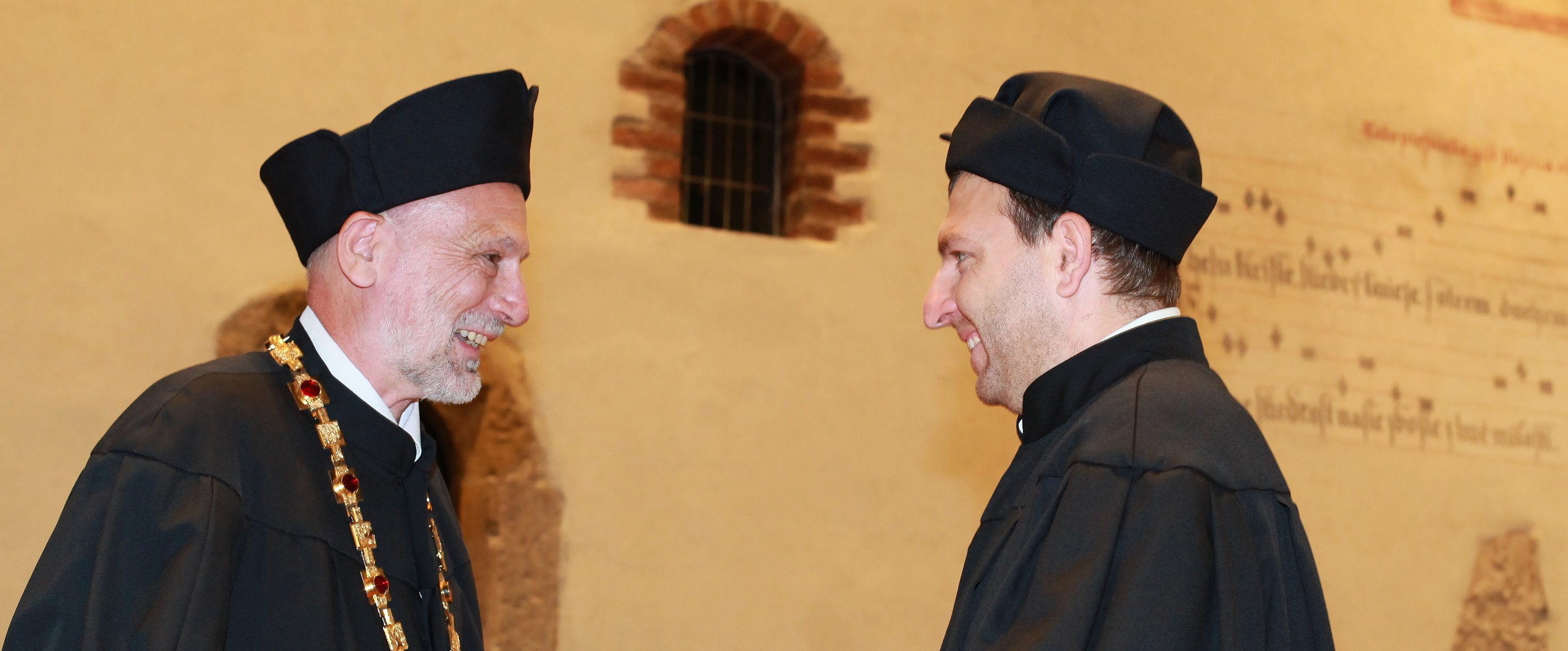
Posted: September 5, 2019
Doc. Ing. Karel Zimmermann, Ph.D., received the Dean’s Award for teaching in the academic year 2018/19 for the course Robotics Vision. Teachers are awarded for teaching results based on the recommendation of the Dean’s Committee. The committee decision is based on the results of the students´ verbal survey, suggestions of the heads of departments, and …
read more
Posted: September 6, 2019
The DARPA Subterranean Challenge Tunnel Circuit took place in Pittsburgh, USA on 15-22 August. A team of CTU-CRAS scientists and students from the Department of Cybernetics and Computer Department of the Faculty of Electrical Engineering of the Czech Technical University in Prague demonstrated a multirobotic system for searching the areas affected by the disaster. CTU-CRAS …
read more
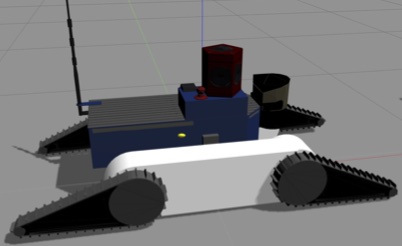
Posted: June 19, 2019
The VRAS group has successfully helped the global open-source robotics community by implementing the first plausible simulation model of tracked vehicles. The model has just been made available to everyone as part of the Gazebo simulator Among others, it will help the CRAS-CTU team in the global DARPA SubT challenge where a team of robots …
read more

Posted: December 14, 2018
Dean’s Award for the Dissertation thesis was given to
Posted: November 16, 2018
Ing. Vladimír Kubelka successfully defended his Ph.D. thesis entitled Improving perception and locomotion capabilities of mobile robots in urban search and rescue missions (supervisor: doc. Ing. Tomáš Svoboda, Ph.D., supervisor specialist: Ing. Michal Reinštein, Ph.D.). Congratulations!

Posted: October 26, 2018
We are partners in a new European research project (CHIST-ERA call) IPALM – Interactive Perception-Action-Learning for Modelling Objects coordinated by Imperial College London. Matej Hoffmann is the PI for our part. The objective of the project is to develop methods for the automatic digitization of objects and their physical properties by exploratory manipulations. The methods …
read more

Posted: July 20, 2018
Matěj Hoffmann is co-organizing a workshop at IEEE/RSJ International Conference on Intelligent Robots and Systems IROS2018. BODIS: The utility of body, interaction and self learning in robotics.
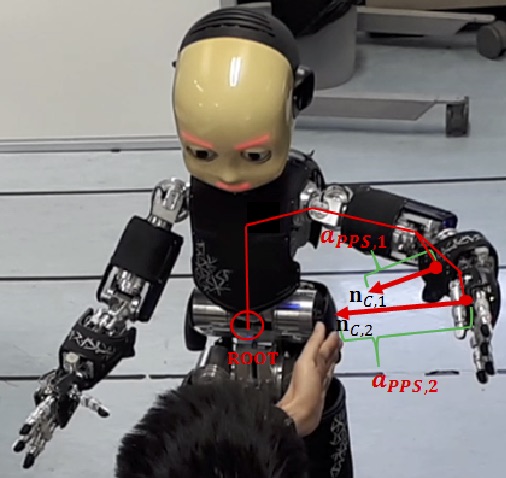
Posted: July 5, 2018
Work in collaboration with IIT Genoa and Yale University on Compact real-time avoidance on a humanoid robot for human-robot interaction appeared at the HRI 2018 Conference held in Chicago. [pdf @ arxiv | youtube video]
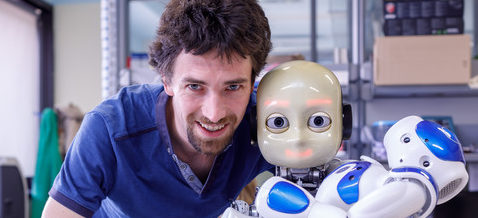
Posted: June 6, 2018
A typical feature of mammals lies in their ability to experience sensations, something that robots are beginning to imitate. With the help of artificial skins and algorithms, our researchers have managed to make a small humanoid robot aware of human contact and even notice if someone is invading his ‘living’ space. The little android with …
read more
Posted: May 31, 2018
Ing. Tomáš Petříček successfully defended his Ph.D. thesis entitled Coupled Learning and Planning for Active 3D Mapping (supervisor: doc. Ing. Tomáš Svoboda, Ph.D.). Congratulations!
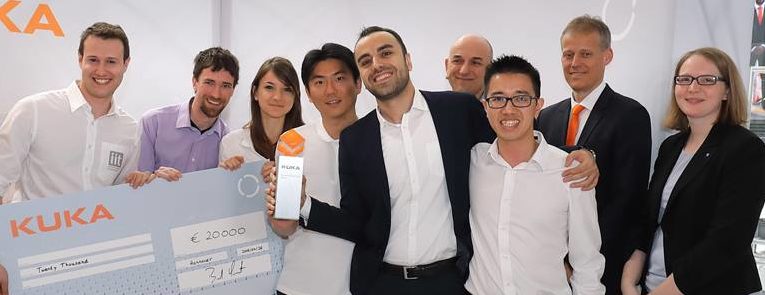
Posted: April 27, 2018
Matěj Hoffmann from the group Vision for Robotics Autonomous Systems (VRAS) was a member of the team who won the Kuka Innovation Award 2018, see the video.
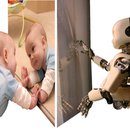
Posted: February 12, 2018
The project RobotBodySchema (or “Robot self-calibration and safe physical human-robot interaction inspired by body representations in primate brains”), investigated by the team of Mgr. Matej Hoffmann, Ph.D., became a Partnering project of the Human Brain Project. Congratulations!
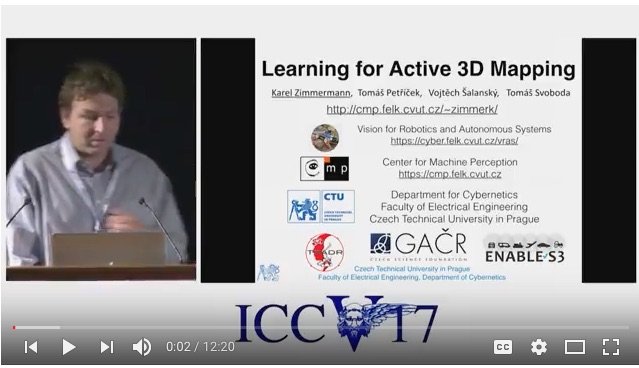
Posted: December 7, 2017
Karel Zimmermann presents at ICCV 2017 paper K. Zimmermann, T. Petricek, V. Salansky, T. Svoboda. Learning for Active 3D Mapping.
Posted: October 6, 2017
Ing. Vladimir Kubelka, a PhD. student of Artificial inteligence and biocybernetics, presented a rescue mobile robot Charlie, which is involved in project TRADR, and invited the viewers to the “Night of scientists“(in czech only) in Studio 6, a Czech TV morning show. Many thanks for the representation of our faculty!
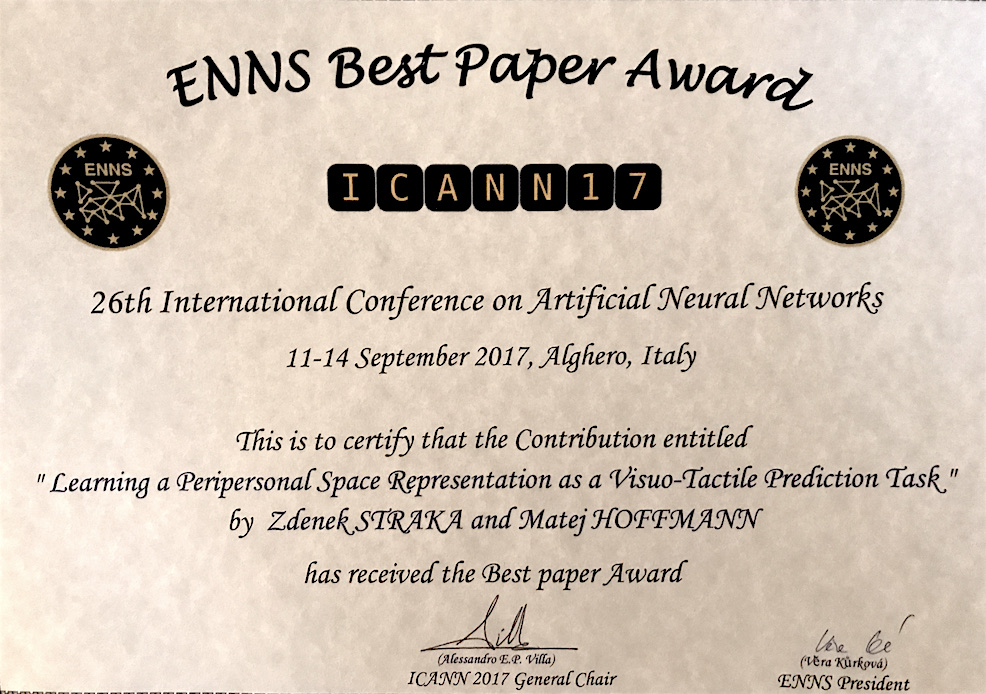
Posted: September 15, 2017
Zdenek Straka and Matej Hoffmann were awarded ENNS Best Paper Award at 26th International Conference on Artificial Neural Networks (ICANN17) for their paper Learning a Peripersonal Space Representation as a Visual-Tactile Prediction Task.
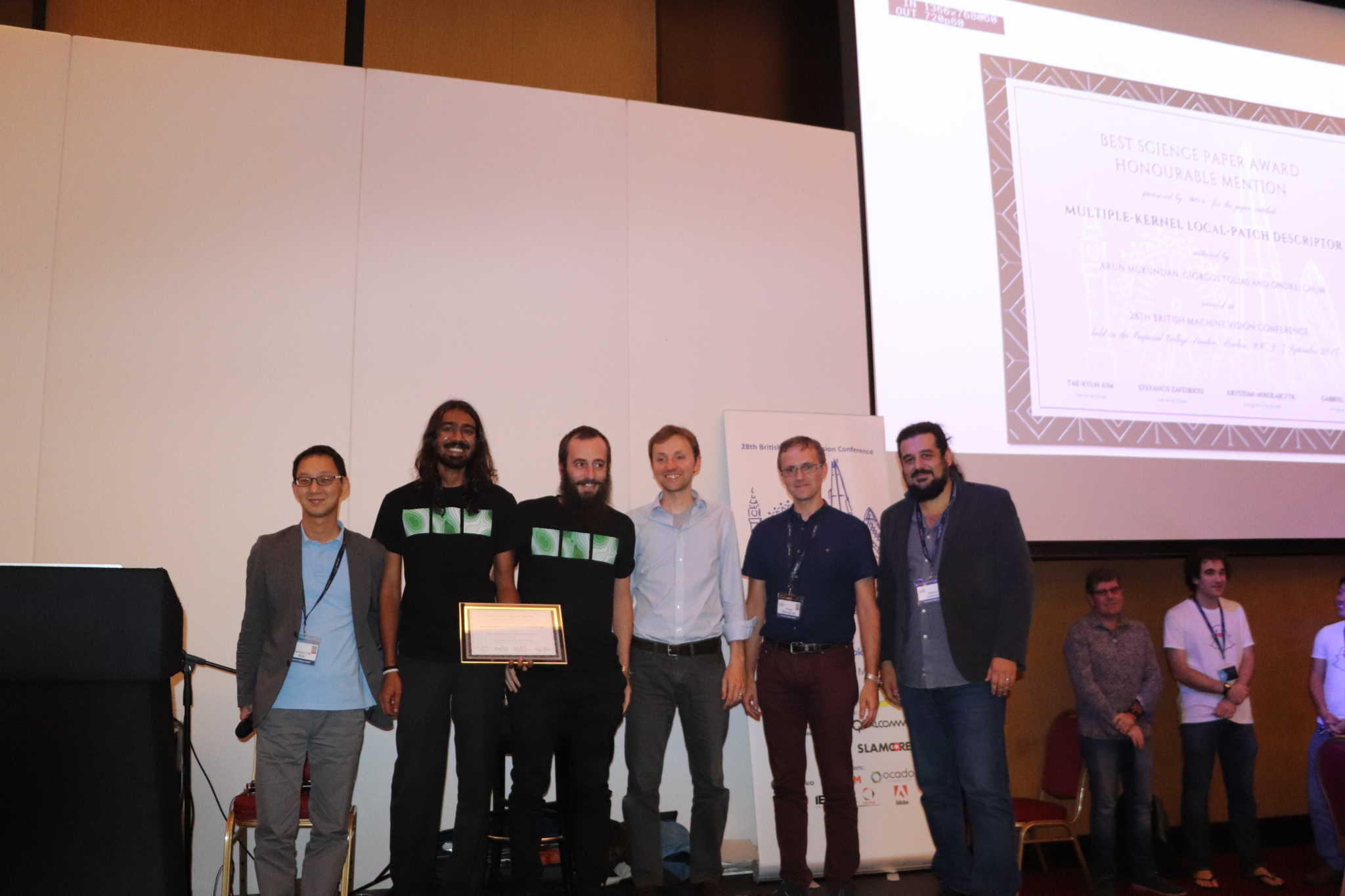
Posted: September 10, 2017
Arun Mukundan, Giorgos Tolias and Ondrej Chum received the best science paper honourable mention at the British Machine Vision Conference (BMVC) 2017 for their article Multiple-kernel Local-patch Descriptor.
Posted: May 10, 2017
Karel Zimmermann has successfully defended his habilitation thesis Safe Adaptive Traversability with Incomplete Data. Congratulation!
Posted: May 15, 2017
Assoc. Prof. Tomáš Svoboda (Vision for Robotics and Autonomous Systems) was a guest on CT24 speaking on the topic: USA: Shared Autonomous Transport in 13 Years? (the interview in Czech language only starts at about 0:15:56).
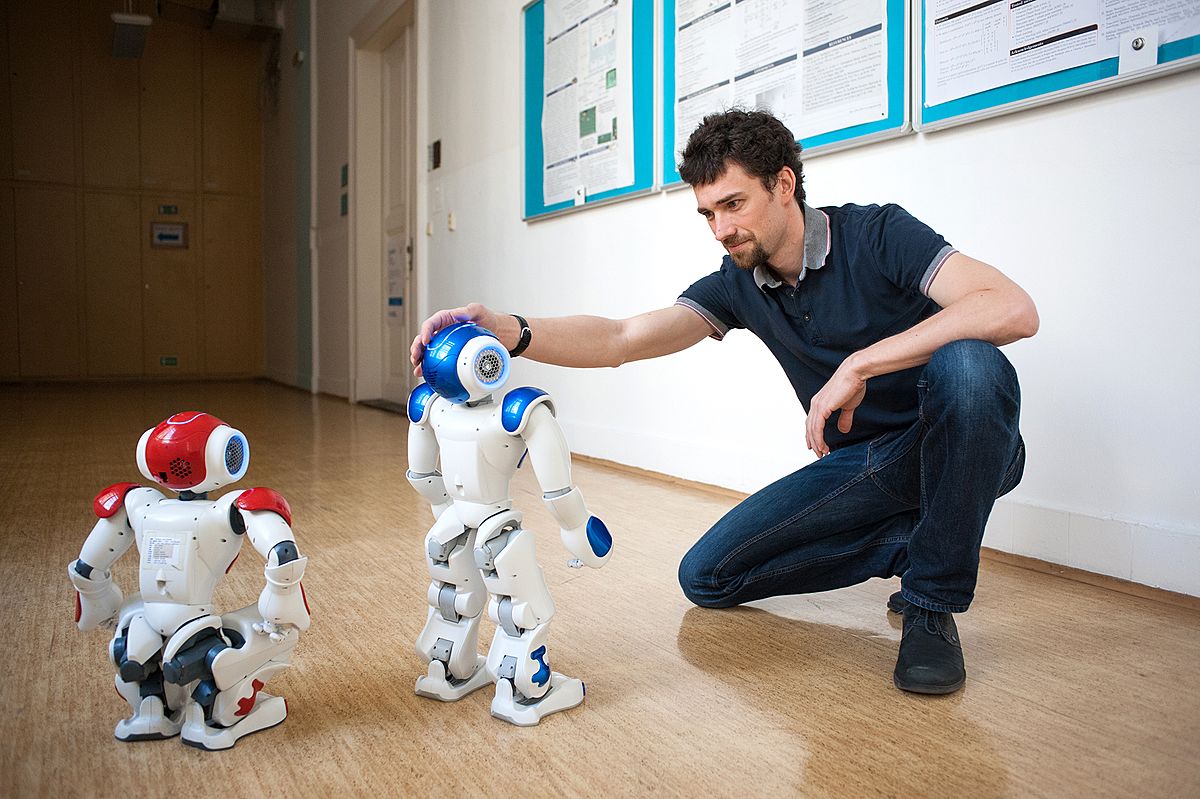
Posted: April 18, 2017
A 4-page cover story about humanoid robotics in Respekt (a major Czech weekly journal), 16/2017. Matej Hoffmann and Zdenek Straka interviewed and photographed with robots. More robots mentioned in the electronic version of the story. The printed version also available at ihned.cz.
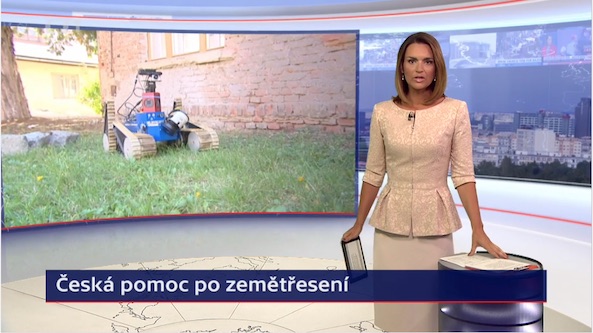
Posted: September 1, 2016
A rescue ground robot is going to Italy after earthquake. Real deployment event featured in Czech TV main news. Department is collaborating with CIIRC within TRADR project.
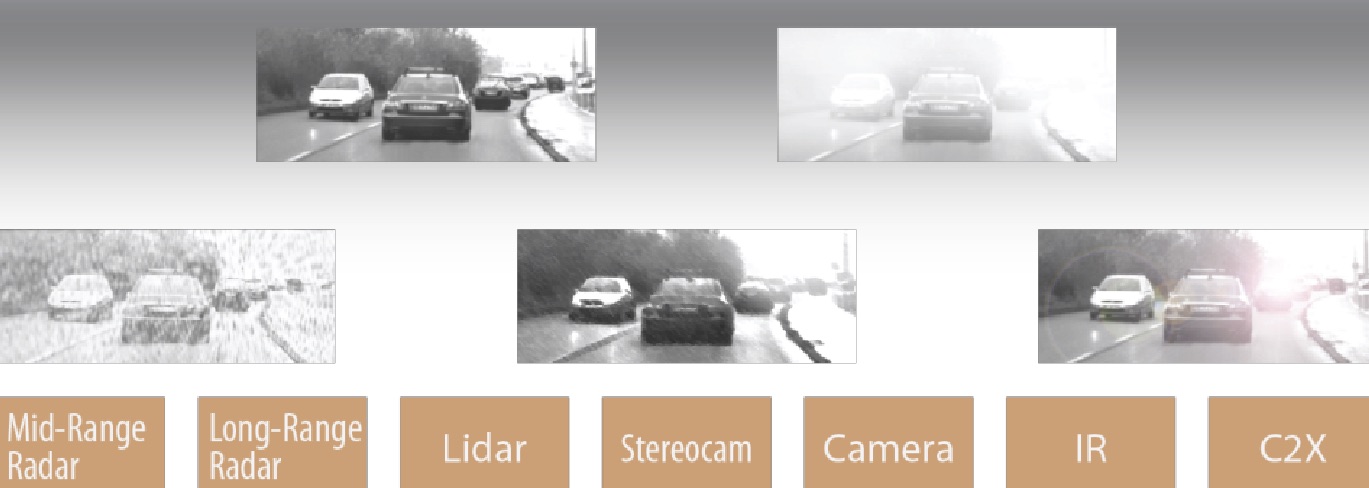
Posted: February 2, 2016
Enable-S3 is a large ECSEL-JU project called European Initiative to Enable Validation for Highly Automated Safe and Secure Systems. Tomas Svoboda is the PI of the CTU part. We will closely collaborate with ValeoCZ working on boosting rare data into the learning and testing in automatic driving.
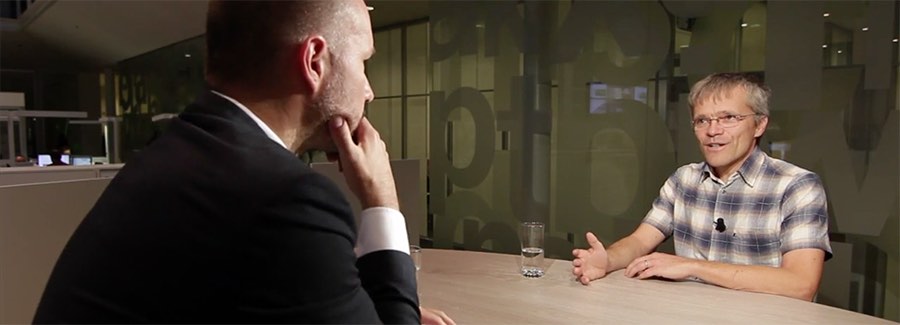
Posted: November 2, 2015
Tomáš Svoboda discussed on DVTV with Martin Veselovský the future of transportation systems and autonomous vehicles (in Czech). Many thanks for successful representation of our department!
